
Affordability is one of the greatest hindrances for most people looking to obtain a higher education. This list will provide you with information on the colleges in each of the fifty states that have the most affordable in-state tuition in an effort to help students to get over the large hurdle of cost. The ranking methodology for each state’s colleges was purely based on the school’s in-state tuition costs for students.
Alabama – H. Councill Trenholm State Technical College
 H. Councill Trenholm State Community College is a community college located in Montgomery, Alabama. The college awards students with various associate’s degrees and certificates in a variety of healthcare and technical disciplines. The college as it is now was formed in 2001 by the merging of Trenholm State Technical College (which was founded 1963) and John M. Patterson Technical School (which was founded 1961). The college maintains two campuses: the Patterson Campus and the Trenholm Campus. The two campuses are located only 8.9 miles apart. The two schools have a shared history in providing postsecondary educational services for the same geographical area. In compliance with a U.S. Federal Court Order, courses were realigned in 1970 to eliminate program duplication and overlap between Patterson State Technical School and Trenholm State Technical School. Because of the court order, program offerings and personnel were shifted between the schools, so each school would have separate course offerings. These offerings have largely remained unchanged for each of H. Councill Trenholm State Technical College’s two campuses.
H. Councill Trenholm State Community College is a community college located in Montgomery, Alabama. The college awards students with various associate’s degrees and certificates in a variety of healthcare and technical disciplines. The college as it is now was formed in 2001 by the merging of Trenholm State Technical College (which was founded 1963) and John M. Patterson Technical School (which was founded 1961). The college maintains two campuses: the Patterson Campus and the Trenholm Campus. The two campuses are located only 8.9 miles apart. The two schools have a shared history in providing postsecondary educational services for the same geographical area. In compliance with a U.S. Federal Court Order, courses were realigned in 1970 to eliminate program duplication and overlap between Patterson State Technical School and Trenholm State Technical School. Because of the court order, program offerings and personnel were shifted between the schools, so each school would have separate course offerings. These offerings have largely remained unchanged for each of H. Councill Trenholm State Technical College’s two campuses.
The program offerings across the two schools consists of the following areas of study: Computer Information Systems, General Education, Graphic Design, Entertainment Media Production, Emergency Medical Services, Dental Assisting, Diagnostic Medical Sonography, Medical Assisting, Medical Radiologic Technology, Nursing Assisting, Practical Nursing, Accounting Technology, Auto Collision Repair, Early Care and Education, Office Administration, Automotive Technology, Diesel Mechanics, Drafting and Design Technology, Truck Driver Training, Welding, Air Conditioning, Auto Manufacturing, Electrical and Instrumentation, Industrial Maintenance, Machine Tooling, Apparel and Design, Cosmetology, Culinary Arts and Therapeutic Massage. The school also offers various courses through their Adult Education Division. These courses are: English as a Second Language (ESL) classes, WorkKeys® Assessment and GED® Preparatory courses. In addition, H. Councill Trenholm State Technical College is an official GED® State Test Center, offering students the ability to take the GED® exam on the school’s campus.
Location: Montgomery, AL
In-State Tuition: $2,664 per year
Website: http://www.trenholmstate.edu/
Alaska – Prince William Sound Community College
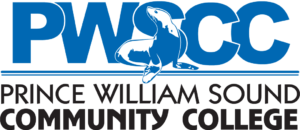 Prince William Sound College–formerly known as Prince William Sound Community College and also officially known as PWSC–is a college located in Valdez, Alaska. PWSC comprises one main campus in Valdez and extension campuses located in Glennallen and Cordova. The school also maintains outreach sites located in Chitina, Chistochina, Kenny Lake, Mentasta, and Slana. The college is part of the University of Alaska Anchorage under the aegis of the University of Alaska System. PWSC services approximately 44,000 square miles around the area of Ohio. Almost 1,000 local, rural, and out-of-state students attend the college in face-to-face or ITV (interactive television) classrooms or via Blackboard (a virtual learning environment and course management system developed by Blackboard Inc.). The school’s out-of-state tuition is the same as the school’s in-state tuition costs.
Prince William Sound College–formerly known as Prince William Sound Community College and also officially known as PWSC–is a college located in Valdez, Alaska. PWSC comprises one main campus in Valdez and extension campuses located in Glennallen and Cordova. The school also maintains outreach sites located in Chitina, Chistochina, Kenny Lake, Mentasta, and Slana. The college is part of the University of Alaska Anchorage under the aegis of the University of Alaska System. PWSC services approximately 44,000 square miles around the area of Ohio. Almost 1,000 local, rural, and out-of-state students attend the college in face-to-face or ITV (interactive television) classrooms or via Blackboard (a virtual learning environment and course management system developed by Blackboard Inc.). The school’s out-of-state tuition is the same as the school’s in-state tuition costs.
The program offerings available through Prince William Sound Community College’s various schools vary greatly, and include: an Associate of Arts in General Studies, an Associate of Applied Science in Industrial Technologies (a focus of either Millwright or Safety Management; the school also offers a Occupational Endorsement Certification in Millwright.) and an Associate of Applied Science in Outdoor Leadership. The school also offers two partnership programs. A degree in Fisheries Technology which is offered in partnership with the University of Alaska Southeast and a degree in Nursing which is offered in partnership with the University of Alaska Anchorage. In addition to these offerings, the school also has a few adult education courses available to students. The Adult Basic Education (ABE) program at PWSC is designed to provide individual and group instruction for a variety of positive educational outcomes. Instruction and instructional materials are provided at no cost to individuals 16 years of age or older. The programs available through the Adult Basic Education program are: Tutoring and Occupational Development, GED® test-taking and English as a Second Language (ESL) courses.
Location: Valdez, Alaska
In-State Tuition: $3,480 per year
Website: http://pwsc.alaska.edu/
Arizona – Northland Pioneer College
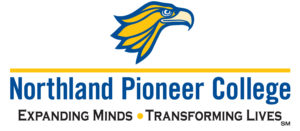 Northland Pioneer College–commonly referred to as NPC–is a regionally accredited, publicly supported and comprehensive community college serving the large area of Navajo County, Arizona. The school’s campuses are located in four of the largest Navajo County communities: Holbrook, Show Low, Snowflake, and Winslow. Five centers are located in Hopi, Kayenta, Eagar, St. Johns and Whiteriver. NPC also partners with community members in Apache County, Arizona. The College offers over 8,000 courses college-wide during fall and spring semesters, approximately 2,000 courses during summer sessions and distance education courses via online courses throughout the school year. Even before the doors of Northland Pioneer College first opened to students in the fall semester of 1974, there were more than fifteen years of effort by several hundred Navajo County residents to secure establishment of the school. Others at the time had questioned the need for–and even the possible success of–a community college located in this vast expanse of Arizona with the state’s scattered and sparse population. The school’s mission statement is “Northland Pioneer College creates, supports and promotes lifelong learning.”
Northland Pioneer College–commonly referred to as NPC–is a regionally accredited, publicly supported and comprehensive community college serving the large area of Navajo County, Arizona. The school’s campuses are located in four of the largest Navajo County communities: Holbrook, Show Low, Snowflake, and Winslow. Five centers are located in Hopi, Kayenta, Eagar, St. Johns and Whiteriver. NPC also partners with community members in Apache County, Arizona. The College offers over 8,000 courses college-wide during fall and spring semesters, approximately 2,000 courses during summer sessions and distance education courses via online courses throughout the school year. Even before the doors of Northland Pioneer College first opened to students in the fall semester of 1974, there were more than fifteen years of effort by several hundred Navajo County residents to secure establishment of the school. Others at the time had questioned the need for–and even the possible success of–a community college located in this vast expanse of Arizona with the state’s scattered and sparse population. The school’s mission statement is “Northland Pioneer College creates, supports and promotes lifelong learning.”
The programs of study available through Northland Pioneer College cover a myriad of areas of study, some of which include: Anthropology, Art, Biology, Chemistry, Early Childhood Development, Economics, English, Film and Digital Video, Geography, Geology, History, Honors Colloquia, Human Services, Humanities, Languages, Mathematics, Music, Philosophy, Photography, Physics, Political Science, Psychology, Sociology, Speech and Theatre, Automotive Technology, Business, Community and Corporate Learning, Computer Information Systems, Construction Technology, Drafting, Cosmetology, Cosmetology Instructor, Nail Technician, Department of Corrections Services, Fire Science, Health and Physical Education,
Industrial Arts Technology, Industrial Maintenance and Operations, Law Enforcement Academy, Mechatronics Engineering, Technology, Welding, Direct Care Worker, Pharmacy Technician,
Phlebotomy, Medical Assistant, Nursing Program, Registered Nurse, Nursing Assistant Training and Paramedicine (EMT) among others. The school also offers various certifications and adult education courses, such as: College and Career Preparation (CCP), GED® test-taking, Certificate of Proficiency (CP) and Certificate of Applied Science (CAS).
Location: Navajo County, AZ
In-State Tuition: $720 per year
Website: http://www.npc.edu/
Arkansas – Crowley’s Ridge Technical Institute
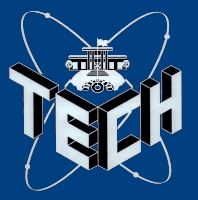 Crowley’s Ridge Vocational-Technical School–presently known as Crowley’s Ridge Technical Institute or CRTI–was created during the development of public postsecondary vocational technical schools in Arkansas. In June of 1965, Forrest City was selected to become the location of one of these new schools. Forty acres of land from Forrest City Industrial Development Corporation and four acres from Janet B. Lenygon were donated on which to construct the new school. A bid for the construction of the building was approved on May 17, 1966. The school accepted its first students in September 1967 and since the school opened in that year, there have only been three directors. Conway Wilson became the first director in September of 1966. In March of 1970, James Mullen took over. Burl Lieblong succeeded Mr. Mullen in August of 1973 and has since been the director of the school.
Crowley’s Ridge Vocational-Technical School–presently known as Crowley’s Ridge Technical Institute or CRTI–was created during the development of public postsecondary vocational technical schools in Arkansas. In June of 1965, Forrest City was selected to become the location of one of these new schools. Forty acres of land from Forrest City Industrial Development Corporation and four acres from Janet B. Lenygon were donated on which to construct the new school. A bid for the construction of the building was approved on May 17, 1966. The school accepted its first students in September 1967 and since the school opened in that year, there have only been three directors. Conway Wilson became the first director in September of 1966. In March of 1970, James Mullen took over. Burl Lieblong succeeded Mr. Mullen in August of 1973 and has since been the director of the school.
The programs offered by Crowley’s Ridge Technical Institute fall under various areas of study, and include the following programs: Accounting Office Technology, Administrative Office Technology, Auto Body Repair, Automotive Service Technology, Basic Drafting Technology, Child Care, Computer Repair and Networking, Cosmetology, Cosmetology Instructor Trainee, Emergency Medical Technician, Industrial Equipment Technology, Major, Appliance Service, Nursing Assistant, Practical Nursing, Residential Construction and Carpentry, Residential Heating and Air Conditioning, Tractor Trailer Driving and Welding. In addition to these programs, the school’s adult education program provides the opportunity for adults to finish their high school education by preparing them to take the GED® test. After passing the GED®, the student will receive the Arkansas High School Diploma. Adult education is divided into Adult Basic Education (ABE) and General Adult Education classes (GAE). In ABE classes, students study to improve basic skills in reading, writing, and math. In GAE classes, students study writing skills, math, and reading in the content areas of social studies, science, and literature, All classes offer individualized instruction and are open-entry/open-exit which means students may enroll any time during the semester and take the GED® test when prepared. Classes are free and held in a variety of places in Cross, Lee, Monroe, and St. Francis counties. Students are invited to walk with other Crowley’s Ridge Technical Institute graduates in June.
Location: Forrest City, Arkansas
In-State Tuition: $1,350 per year
Website: http://www.crti.tec.ar.us/
California – Sacramento City College
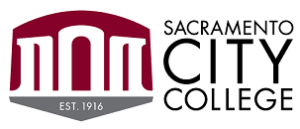 Sacramento City College–also commonly referred to as SCC–is a two-year community college located in Sacramento, California. SCC is part of the Los Rios Community College District and is officially accredited by the Accrediting Commission for Community and Junior Colleges (ACCJC). The school offers both Associate in Science (A.S) and Associate in Art (A.A.) degrees. Founded in the year of 1916 as a department of Sacramento High School, Sacramento City College is the seventh oldest public community college in California and the oldest institution of higher learning located in Sacramento. In 1922, the citizens of Sacramento organized a junior college district, effectively granting Sacramento Junior College its administrative independence from Sacramento High School. This plan of organization remained in force until 1936, when the college became a part of the Sacramento City Unified School District.
Sacramento City College–also commonly referred to as SCC–is a two-year community college located in Sacramento, California. SCC is part of the Los Rios Community College District and is officially accredited by the Accrediting Commission for Community and Junior Colleges (ACCJC). The school offers both Associate in Science (A.S) and Associate in Art (A.A.) degrees. Founded in the year of 1916 as a department of Sacramento High School, Sacramento City College is the seventh oldest public community college in California and the oldest institution of higher learning located in Sacramento. In 1922, the citizens of Sacramento organized a junior college district, effectively granting Sacramento Junior College its administrative independence from Sacramento High School. This plan of organization remained in force until 1936, when the college became a part of the Sacramento City Unified School District.
Sacramento City College offers students degrees and certification in various areas of study, including: Accounting Clerk, Full Charge Bookkeeper, Air Traffic Control, Aircraft Dispatcher , Airframe, Combined Airframe and Powerplant, Flight Technology, Pre-Allied Health and Nursing, Studio Arts, Art History, Field Ecology, Business Administration, Marketing, Real Estate, Chemical Technology, Computer Science, Network Administration, Programming, Web Production Specialist, Art and Science of Nail Technology – Cosmetology, Dental Assisting, Dental Hygiene, Early Childhood Education, Microcomputer Technician, General Engineering, Architectural and Structural Drafting, Geography and Geology among many others. On top of the school’s extensive degree-granting and certification-granting course offerings, Sacramento City College also offers Career Technical Education (CTE) programs which prepare students for careers in the skilled trades, applied arts and sciences, and modern technologies. Within the Career Technical Education programs, there over 90 certificates and degrees that, upon completion, will lead to direct employment opportunities in hospitals, dental offices, businesses, and federal / state or county agencies in the Greater Sacramento area.
Location: Sacramento, California
In-State Tuition: Free
Website: http://www.scc.losrios.edu/
Colorado – Pickens Technical College
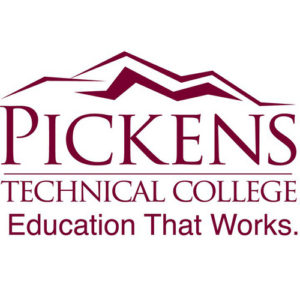 Pickens Technical College offers nearly 50 certificate programs to adults and high school students as part of the Aurora Public Schools & the Colorado Community College System.
Pickens Technical College offers nearly 50 certificate programs to adults and high school students as part of the Aurora Public Schools & the Colorado Community College System.
The school’s main goal is to provide students with the opportunity to acquire state-of-the-art skills, knowledge and work habits that will help them succeed in the workforce in various industries. Upon completion of most programs students will receive a certificate and transcript that is transferable to any community college or area technical school/college in Colorado in their area of training. Pickens Technical College has a special relationship with the Community College of Aurora. Students interested in obtaining an Associate of Applied Science (AAS) degree can start their degree at Pickens Tech by completing technical classes for designated occupational certificates, then they can continue taking their general education courses and other requirements at CCA. After the appropriate number of courses are completed, an AAS degree is awarded by the Community College of Aurora.
The programs of study offered at Pickens Technical College are more geared towards trade and craft education. These areas of study include: Graphic Design, Professional Photography, Small Business Management, Marketing: Hospitality & Tourism, Construction Technology, Heating and Air Conditioning, Property Maintenance, Computer Aided Drafting, Enterprise Computer Service, General Electronics Technology, Mobile Applications, Precision Machining, Welding, Dental Assisting/Expanded Duty Dental Assist, Human Performance/Personal Trainer, Medical Assistant, Medical Assistant – Billing Specialist, Nurse Aide, Pharmacy Technician, Practical Nursing, Respiratory Care, Early Childhood Education, Executive Internship, Foundations For Healthcare Professionals, Barber, Cosmetology, Culinary Arts, Esthetician, Nail Technician, Urban Horticulture and Landscape, Veterinary Assistant, Automotive Technology, Collision Repair, Diesel Power Mechanics and Motorcycle Service Technology ( Power Sports ). In addition to these areas of study, the school also offers various career services such as resume building, unpaid and paid internships and job placement to enrolled students through the school’s PTC Career Services program.
Location: Aurora, Colorado
In-State Tuition: $2,280 per year
Website: http://www.pickenstech.org/
Connecticut – Housatonic Community College
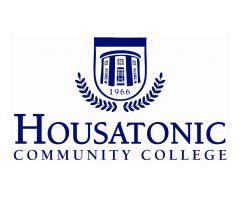 Housatonic Community College–commonly referred to as HCC–is a two-year public community college located in Bridgeport, Connecticut. It is one of the twelve community colleges in the state governed by the Connecticut Board of Regents for Higher Education. The school is also home to the Housatonic Museum of Art (HMA) which was established in 1967 with the idea that visual art should be integrated into student’s daily environments as a vital component of an enriching academic experience. The museum’s collection includes a broad range of artworks and ethnographic objects with a special emphasis on contemporary art. The HMA is one of the largest art collections of any two-year college in the Northeast. Paintings, sculptures, and prints are displayed in small, thematic exhibitions throughout the college. The Burt Chernow Galleries presents rotating exhibitions that address topics relevant to the student body, that are inspired by the works in the collection, or traveling exhibitions that highlight regional, national or international artists. Programming between the museum, faculty and students further engages the students with the collection and exhibitions.
Housatonic Community College–commonly referred to as HCC–is a two-year public community college located in Bridgeport, Connecticut. It is one of the twelve community colleges in the state governed by the Connecticut Board of Regents for Higher Education. The school is also home to the Housatonic Museum of Art (HMA) which was established in 1967 with the idea that visual art should be integrated into student’s daily environments as a vital component of an enriching academic experience. The museum’s collection includes a broad range of artworks and ethnographic objects with a special emphasis on contemporary art. The HMA is one of the largest art collections of any two-year college in the Northeast. Paintings, sculptures, and prints are displayed in small, thematic exhibitions throughout the college. The Burt Chernow Galleries presents rotating exhibitions that address topics relevant to the student body, that are inspired by the works in the collection, or traveling exhibitions that highlight regional, national or international artists. Programming between the museum, faculty and students further engages the students with the collection and exhibitions.
The school offers various Associate degree programs and certificates to students. The Associate degree programs available include: Accounting, Advanced Manufacturing, Aviation Maintenance, Banking, Business Administration, Technology Studies, Computer Information Systems, Criminal Justice, Early Childhood Education, Fine Arts, General Studies, Graphic Design, Human Services, Liberal Arts & Sciences, Medical Assisting, Nursing, Occupational Therapy Assistant, Paramedic Studies, Pathway to Teaching Careers, Physical Therapy Assistant, Psychology and Theater Arts. The certificate programs available through Housatonic Community College include: Accounting for Small Business, Customer Service and Marketing, Retail Banking, Small Business Management / Entrepreneurship, PC Applications, Personal Computer Repair Technology, Web Design Technology, Criminal Corrections, Criminal Investigation and Police Management and Administration.
Location: Bridgeport, Connecticut
In-State Tuition: $3,360 per year
Website: http://www.housatonic.edu/
Delaware – Delaware Technical Community College
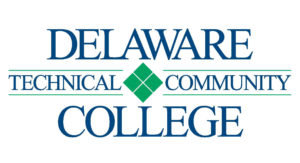 Delaware Technical Community College–commonly referred to as DTCC or Del Tech–is the only community college in the state of Delaware. The four component campuses that make up the college are the Jack F. Owens Campus in Georgetown, Delaware; the Stanton Campus in Stanton, Delaware; the Charles L. Terry Campus in Dover; and the Orlando J. George, Jr. Campus in Wilmington, Delaware. Del Tech was created by the Delaware General Assembly in 1966 by the passing of House Bill 529. Del Tech is an open admission institution that is accredited by the Middle States Association of Colleges and Schools. The college offers more than 100 associate degree, diploma and certificate programs in the fields of Agriculture, Business, Computer Technology, Culinary Arts, Education, Energy and Engineering, Health and Science, Public Service, Transportation, and Visual Communications. Of these programs, 48 are accredited degree programs with articulation agreements with 61 other institutions of higher learning.
Delaware Technical Community College–commonly referred to as DTCC or Del Tech–is the only community college in the state of Delaware. The four component campuses that make up the college are the Jack F. Owens Campus in Georgetown, Delaware; the Stanton Campus in Stanton, Delaware; the Charles L. Terry Campus in Dover; and the Orlando J. George, Jr. Campus in Wilmington, Delaware. Del Tech was created by the Delaware General Assembly in 1966 by the passing of House Bill 529. Del Tech is an open admission institution that is accredited by the Middle States Association of Colleges and Schools. The college offers more than 100 associate degree, diploma and certificate programs in the fields of Agriculture, Business, Computer Technology, Culinary Arts, Education, Energy and Engineering, Health and Science, Public Service, Transportation, and Visual Communications. Of these programs, 48 are accredited degree programs with articulation agreements with 61 other institutions of higher learning.
The programs of study and certifications offered at Delaware Technical Community College are greatly varied, but include the following: Accounting, Advertising Design, Agribusiness Management, Architectural Engineering Technology, Automotive, Automotive Technician Studies, Aviation Maintenance Technology, Baking and Pastry Skills Certificate, Baking and Pastry Skills Studies, Biological Sciences, Biotechnology, Building Automation Systems Option, Business Administration Transfer Option, Cardiovascular Sonography, Chemical Process Operator, Chemical Process Operator Certificate, Chemical Process Operator Studies, Chemistry, Chemistry with a Math Concentration, Civil Engineering Technology, Commercial Transportation Certificate, Commercial Transportation Studies, Communications, Computer Aided Drafting Design Technology, Computer Engineering Tcy Option, Computer Information Systems, Computer Network Engineering Technology, Computing and Information Science, Construction Management, Cooking Certificate, Criminal Justice, Culinary Arts, Dental Hygiene, Design Engineering Mechanical, Developmental Math, Developmental Reading, Developmental Writing, Diagnostic Medical Sonography, Direct Support Professional Certificate, Drug Alcohol Counseling, Drug Alcohol Counseling Certificate, ENT Refrigeration Heating AC Certificate, Early Care and Education Birth to Second Grade, Early Childhood Development, Early Childhood Studies, Electrical and Computer Engineering Transfer Option and Electromechanical Engineering among many others.
Location: Georgetown, Delaware
In-State Tuition: $3,018 per year
Website: https://www.dtcc.edu/
Florida – Broward College
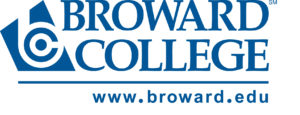 Broward College–previously known by the names Junior College of Broward County and Broward Community College–is a state college located in Fort Lauderdale, Florida. The school is part of the Florida College System and was established in 1959 as part of a move to broaden Florida’s two-year community college system. In 2008 it adopted its current name, reflecting that it is one of the schools designated as a state college, meaning the school is accredited to offer four-year bachelor’s degrees to students. In 2012, Broward College was named one of the top 10 percent of community colleges in the nation by the Washington D.C.-based Aspen Institute, which is an institute–along with international partners–that is dedicated to promoting the pursuit of common ground and deeper understanding in a nonpartisan and non-ideological setting through regular seminars, policy programs, conferences and leadership development initiatives. The Aspen Institute’s placement of Broward College in the top 10 percent of community colleges in the nation proves that Broward College provides students with a high-quality education, due to the fact that the Aspen Institute is largely funded by foundations such as the Carnegie Corporation, the Rockefeller Brothers Fund, the Gates Foundation, the Lumina Foundation and the Ford Foundation which all share a strong interest in academic excellence for various reasons.
Broward College–previously known by the names Junior College of Broward County and Broward Community College–is a state college located in Fort Lauderdale, Florida. The school is part of the Florida College System and was established in 1959 as part of a move to broaden Florida’s two-year community college system. In 2008 it adopted its current name, reflecting that it is one of the schools designated as a state college, meaning the school is accredited to offer four-year bachelor’s degrees to students. In 2012, Broward College was named one of the top 10 percent of community colleges in the nation by the Washington D.C.-based Aspen Institute, which is an institute–along with international partners–that is dedicated to promoting the pursuit of common ground and deeper understanding in a nonpartisan and non-ideological setting through regular seminars, policy programs, conferences and leadership development initiatives. The Aspen Institute’s placement of Broward College in the top 10 percent of community colleges in the nation proves that Broward College provides students with a high-quality education, due to the fact that the Aspen Institute is largely funded by foundations such as the Carnegie Corporation, the Rockefeller Brothers Fund, the Gates Foundation, the Lumina Foundation and the Ford Foundation which all share a strong interest in academic excellence for various reasons.
The areas of study offered at Broward College are varied and plenty, and include: Arts, Humanities, Communication, & Design (AHCD), Business, Education, Health Science, Industry, Manufacturing, Construction & Transportation (IMC), Public Safety, Science, Technology, Math, & Engineering (STEM) and Social Behavioral Sciences & Human Services (SBSHS) with academic programs such as: Accounting, Architecture, Automotive Program, Aviation, Building Construction, Business Administration, Computer Science, Early Childcare Education, Engineering, English Language Learners, Environmental Science Programs, Environmental Science B.S, Environmental Science Technology, Graphic Design, Hospitality, Information Technology (BAS), Institute of Public Safety, Leveraging, Integrating, Networking, Coordinating Supplies (LINCS), Logistics, Manufacturing, Marine Engineering, Marketing, Multimedia, Office Administration, Paralegal Studies (Legal Assisting), Supervision Management (BAS), Teacher Education (BA), Technology Management (BAS) and Visual & Performing Arts.
Location: Fort Lauderdale, Florida
In-State Tuition: $1,810 per year
Website: http://www.broward.edu/Pages/home.aspx
Georgia – Columbus Technical College
 Columbus Technical College–commonly referred to as Columbus Tech or CTC–is a two-year technical college located in Columbus, Georgia, and is governed by Technical College System of Georgia. Columbus Technical College’s origins date back to the year of 1961, when the Columbus Area Vocational-Technical School–operating as a unit of the Muscogee County School District, which is the county government agency which operates the public schools in Muscogee County, Georgia–opened with thirty-nine students enrolled in eight different programs. In 1966, the school merged with the Muscogee Area Vocational-Technical School at Columbus Tech’s present-day location. In 2005, Columbus Technical College spearheaded a capital campaign to raise funds for a state-of-the-art health sciences learning facility. This fundraiser brought in approximately $10 million in addition to the State of Georgia approving an additional $16 million in funds. The end result of this large-scale fundraiser was the Robert L. Wright, Jr. Health Sciences Center opening its doors to the school’s first healthcare students in October of 2010.
Columbus Technical College–commonly referred to as Columbus Tech or CTC–is a two-year technical college located in Columbus, Georgia, and is governed by Technical College System of Georgia. Columbus Technical College’s origins date back to the year of 1961, when the Columbus Area Vocational-Technical School–operating as a unit of the Muscogee County School District, which is the county government agency which operates the public schools in Muscogee County, Georgia–opened with thirty-nine students enrolled in eight different programs. In 1966, the school merged with the Muscogee Area Vocational-Technical School at Columbus Tech’s present-day location. In 2005, Columbus Technical College spearheaded a capital campaign to raise funds for a state-of-the-art health sciences learning facility. This fundraiser brought in approximately $10 million in addition to the State of Georgia approving an additional $16 million in funds. The end result of this large-scale fundraiser was the Robert L. Wright, Jr. Health Sciences Center opening its doors to the school’s first healthcare students in October of 2010.
The programs of study offered at Columbus Technical College span across Business, General Studies, Health Sciences and Nursing and Professional and Technical Services, with degree and certification programs which include the following: Accounting (Associate of Applied Science), Business Technology (Associate of Applied Science), Business Technology Diploma, Accounting Diploma, Business Management (Associate of Applied Science), Business Management Diploma, Computer Support Specialist (Associate Applied Science), Computer Support Specialist Diploma, Networking Specialist (Associate of Applied Science), Networking Specialist Diploma, Criminal Justice Technology (Associate of Applied Science), Criminal Justice Fundamentals Certificate, Early Childhood Care and Education (Associate of Applied Science), Child Development Specialist Certificate, Human Resource Management (Associate of Applied Science), Paralegal Studies (Associate of Applied Science), Biology (Applied Associate of Science), Dental Hygiene (Associate of Applied Science) and Air Conditioning Repair Specialist Certificate among many other programs across the school’s four major areas of study.
Location: Columbus, Georgia
In-State Tuition: $1,275 per year
Website: http://www.columbustech.edu/
Hawaiʻi – Hawaiʻi Community College
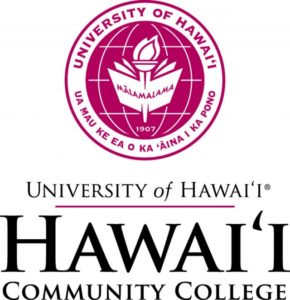 Hawaiʻi Community College at Hilo is a public, co-educational commuter college–which is a college whose enrolled students do not live on-campus, and instead commute daily to the school to attend classes–located in Hilo, Hawaiʻi on the Island of Hawaiʻi. The school was originally founded 1941 as the Hawaiʻi Vocational School, and Hawaiʻi Community College is one of ten branches of the University of Hawaiʻi system anchored by the University of Hawaiʻi at Mānoa in Honolulu. The school is accredited by the Western Association of Schools and Colleges, which is responsible for accrediting schools located in the Western region of the United States, such as: California and Hawaii and the nation’s territories of Guam, American Samoa and Northern Marianas Islands. The school’s campus is located less than a mile away from the University of Hawaiʻi at Hilo and the two schools share some facilities, including the library and some classrooms and offices.
Hawaiʻi Community College at Hilo is a public, co-educational commuter college–which is a college whose enrolled students do not live on-campus, and instead commute daily to the school to attend classes–located in Hilo, Hawaiʻi on the Island of Hawaiʻi. The school was originally founded 1941 as the Hawaiʻi Vocational School, and Hawaiʻi Community College is one of ten branches of the University of Hawaiʻi system anchored by the University of Hawaiʻi at Mānoa in Honolulu. The school is accredited by the Western Association of Schools and Colleges, which is responsible for accrediting schools located in the Western region of the United States, such as: California and Hawaii and the nation’s territories of Guam, American Samoa and Northern Marianas Islands. The school’s campus is located less than a mile away from the University of Hawaiʻi at Hilo and the two schools share some facilities, including the library and some classrooms and offices.
The areas of study available at Hawaiʻi Community College include the following programs that will confer either a diploma or certification upon student completion: Accounting, Administration of Justice, Agriculture, Architectural, Engineering & Computer-Aided Drafting (CAD) Technologies, Auto Body Repair & Painting, Automotive Mechanics Technology, Business Technology, Carpentry, Culinary Arts, Diesel Mechanics, Digital Media Arts, Early Childhood Education, Electrical Installation and Maintenance Technology, Electronics Technology, Fire Science, Hawaiʻi Cultural and Historical Studies, Hospitality and Tourism, Human Resources, Information Technology, Liberal Arts, Machine, Welding and Industrial Mechanics Technologies, Marketing, Natural Science, Nursing and Allied Health, Substance Abuse Counseling and Tropical Forest Ecosystem and Agroforestry Management. In addition to these areas of study, the school also offers many programs of training in Workforce and Professional Development, Cultural and Personal Enrichment, Youth Summer Programs, and High School Summer Career Exploration. These classes are offered to the public on-site, online, and can be customized for individual businesses such as an Introduction to the World of Clay class and a Manta Naturalist course.
Location: Hilo, Hawaiʻi
In-State Tuition: $2,544 per year
Website: https://hawaii.hawaii.edu/
Idaho – Eastern Idaho Technical College
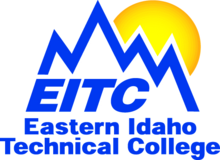 Eastern Idaho Technical College–commonly referred to as EITC–is a regional technical college located in Idaho Falls, Idaho. The school was founded in the year of 1969. Eastern Idaho Technical College was originally named Eastern Idaho Vocational Technical School. The school received Northwest Accreditation in 1982, which it obtained in order to become eligible for federal student aid programs. The school is a State supported technical college with the goal to serve citizens in its nine county service area by being a minimal cost, open-door institution that champions technical programs, customized industry training, basic skills instruction, workforce and community education, online distance education and various other student services. Because the school is an open-door institute, no prospective student will be turned away based on any factor. The admission process is both nonselective and noncompetitive; with the only criteria for admission being that the student have either a high school diploma or GED® certificate.
Eastern Idaho Technical College–commonly referred to as EITC–is a regional technical college located in Idaho Falls, Idaho. The school was founded in the year of 1969. Eastern Idaho Technical College was originally named Eastern Idaho Vocational Technical School. The school received Northwest Accreditation in 1982, which it obtained in order to become eligible for federal student aid programs. The school is a State supported technical college with the goal to serve citizens in its nine county service area by being a minimal cost, open-door institution that champions technical programs, customized industry training, basic skills instruction, workforce and community education, online distance education and various other student services. Because the school is an open-door institute, no prospective student will be turned away based on any factor. The admission process is both nonselective and noncompetitive; with the only criteria for admission being that the student have either a high school diploma or GED® certificate.
The areas of study offered at Eastern Idaho Technical College include Business, Office, Technology, Health Professions, Trades and Industry and General Education with degree and certification programs including: Automotive Automatic Transmission and Transaxle Specialist, Automotive Brake Specialist, Automotive Electronic Specialist, Automotive Engine Performance Specialist, Automotive Engine Repair Specialist, Automotive Heating & Air Conditioning Specialist, Automotive Power Trains, Suspension & Steering Specialist, Dental Assisting, Medical Assisting, Practical Nursing, Registered Nursing, Surgical Technology, Radiation Safety, Accounting Paraprofessional, Applied Accounting Clerk, Marketing and Management, Microsoft Computer Networking Technologies, Business Technology, Microsoft Certified Systems Engineer (MCSE), Legal Assistant and Web Development Specialist. In addition to these degree- and certificate-granting programs, Eastern Idaho Technical College also offers various courses in adult basic education, GED® test preparation courses, college preparation courses, English as a Second Language (ESL) courses and workforce training.
Location: Idaho Falls, Idaho
In-State Tuition: $2,122 per year
Website: http://www.eitc.edu/
Illinois – Highland Community College
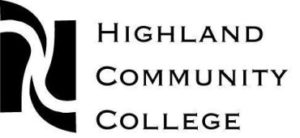 Highland Community College–commonly referred to as HCC or simply just Highland–is a public two-year community college, with the school’s main campus located in Freeport, Illinois. The college is recognized by the Illinois Community College Board and is accredited by the Higher Learning Commission, which both the United States Department of Education (USDoE) and the Council for Higher Education Accreditation (generally referred to as CHEA) recognizes as an accrediting organization. Highland Community College was first established in 1962 on the land purchased from the Taft family. The Highland Community College Foundation was the first community college foundation established in the State of Illinois and was the second college foundation established in the entire nation. The college foundation was established by Dr. Howard D. Sims, who presided over Highland Community College from 1975 to 1980 as the school’s president.
Highland Community College–commonly referred to as HCC or simply just Highland–is a public two-year community college, with the school’s main campus located in Freeport, Illinois. The college is recognized by the Illinois Community College Board and is accredited by the Higher Learning Commission, which both the United States Department of Education (USDoE) and the Council for Higher Education Accreditation (generally referred to as CHEA) recognizes as an accrediting organization. Highland Community College was first established in 1962 on the land purchased from the Taft family. The Highland Community College Foundation was the first community college foundation established in the State of Illinois and was the second college foundation established in the entire nation. The college foundation was established by Dr. Howard D. Sims, who presided over Highland Community College from 1975 to 1980 as the school’s president.
The areas of study available at Highland Community College include the following: Accounting, Agriculture, Art and Graphic Design, Automotive, Biology, Business and Administrative, Technology, Chemistry, Computer Science, Cosmetology, Criminal Justice, Early Childhood, Education, Engineering, English, Foreign Languages, Environmental Science, Equine Science, Geology, History and Political Science, Hospitality Management, Industrial Manufacturing, Industrial Training, Information Technology, Healthcare, Information Systems, Liberal Arts and Professional Education, Mass Communication, Mathematics, Mechatronics, Medical Sciences, Music, Speech, Theatre, Nursing and Allied Health Programs, Basic Nursing Assistant, Nursing, Medical Assistant, Emergency Medical Services (EMS) & Paramedic (through SwedishAmerican Health Systems), Paraprofessional Education, Physical Education, Physics, Psychology, Sociology, Human and Social Services, Web Design and Wind Turbine Technician. In addition to these various areas of study, Highland Community College also offers to students access to the Success Center, which is committed to providing quality programs, services and curriculum that promote the academic success of all Highland students. The Center offers First-Year Experience Seminar, developmental communication skills courses, tutoring and guidance and support through implementation of the American Disabilities Act.
Location: Freeport, Illinois
In-State Tuition: $4,080 per year
Website: http://www.highland.edu/
Indiana – Ivy Tech Community College
 Ivy Tech Community College of Indiana–commonly referred to as Ivy Tech or ITCC–is Indiana’s community college system and it encompasses thirty campuses in fourteen different regions. It is the state’s largest public postsecondary institution and the nation’s largest singly accredited statewide community college system, which serves nearly 200,000 students annually. Ivy Tech Community College is accredited by the Higher Learning Commission. Ivy Tech was founded in 1963 as Indiana Vocational Technical College in order to provide technical and vocational education for various industries and was rechartered as a system of vocational technical schools in 2005. The name Ivy Tech derives from an initialism of the school’s original name, Indiana Vocational Technical College, which was often shortened to “I.V. Tech.” The name was officially changed to Ivy Tech State College in 1995.
Ivy Tech Community College of Indiana–commonly referred to as Ivy Tech or ITCC–is Indiana’s community college system and it encompasses thirty campuses in fourteen different regions. It is the state’s largest public postsecondary institution and the nation’s largest singly accredited statewide community college system, which serves nearly 200,000 students annually. Ivy Tech Community College is accredited by the Higher Learning Commission. Ivy Tech was founded in 1963 as Indiana Vocational Technical College in order to provide technical and vocational education for various industries and was rechartered as a system of vocational technical schools in 2005. The name Ivy Tech derives from an initialism of the school’s original name, Indiana Vocational Technical College, which was often shortened to “I.V. Tech.” The name was officially changed to Ivy Tech State College in 1995.
The areas of study offered through Ivy Tech Community College are varied and many, but include: Accounting, Advanced Automation and Robotics Technology, Advanced Manufacturing, Agriculture, Automotive Technology, Aviation Maintenance Technology, Aviation Manufacturing, Aviation Technology, Baking and Pastry Arts, Biotechnology, Building Construction Management, Building Construction Technology, Business Administration, Business Operations, Applications, and Technology, Chemical Technology, Computer Science, Computers, Criminal Justice, Culinary Arts, Cyber Security / Information Assurance, Database Management and Administration, Dental Assisting, Dental Hygiene, Design Technology, Diagnostic Medical Sonography, Early Childhood Education, Education, Electrical Engineering Technology, Electronics & Computer Technology, Elementary Education (see Education), Emergency Medical Technician – EMT, Energy Technology, Engineering Technology, Entrepreneurship, Environmental Design, Fine Arts, Fire Science, General Studies, Healthcare Specialist, Health Information Technology, Heating, Ventilating and Air Conditioning Technology (HVAC), Homeland Security / Public Safety, Hospitality Administration, Human Services, Imaging Sciences, Industrial Technology, Informatics, Information Technology, Information Technology Support, Interior Design, Kinesiology and Exercise Science, Liberal Arts, Library Technical Assistant, Machine Tool Technology, Maintenance Technician – Mechanical, Maintenance Technician – Electrical, Manufacturing Production and Operations, Mechanical Engineering Technology, Medical Assisting, Medical Laboratory Technology and Mortuary Science among many others.
Location: Multiple Locations, Indiana
In-State Tuition: $3,485 per year
Website: https://www.ivytech.edu/
Iowa – Western Iowa Tech Community College
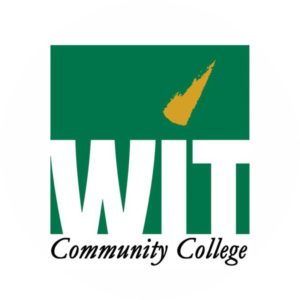 Western Iowa Tech Community College–commonly referred to as WITCC or simply WIT–is a comprehensive community college with five campuses located in Northwestern Iowa. The main campus is located in Sioux City, Iowa; and the other four campuses are located in Mapleton, LeMars, Denison and Cherokee, Iowa. The school has many core values and guiding principles which they incorporate into every aspect of student life. These values are: Student Learning, Quality, Access, Diversity, Lifelong Learning, Academic Freedom, Shared Governance, Efficiency, Efficacy, Dedication and Personal Integrity. By sticking to and enforcing these values, the student body and the school’s faculty are able to create a highly effective and dynamic learning environment that has produced many successful professionals in various industries worldwide over the course of the school’s 50-year long existence. This equates to 50 years of experience in producing outstanding results and outstanding individuals.
Western Iowa Tech Community College–commonly referred to as WITCC or simply WIT–is a comprehensive community college with five campuses located in Northwestern Iowa. The main campus is located in Sioux City, Iowa; and the other four campuses are located in Mapleton, LeMars, Denison and Cherokee, Iowa. The school has many core values and guiding principles which they incorporate into every aspect of student life. These values are: Student Learning, Quality, Access, Diversity, Lifelong Learning, Academic Freedom, Shared Governance, Efficiency, Efficacy, Dedication and Personal Integrity. By sticking to and enforcing these values, the student body and the school’s faculty are able to create a highly effective and dynamic learning environment that has produced many successful professionals in various industries worldwide over the course of the school’s 50-year long existence. This equates to 50 years of experience in producing outstanding results and outstanding individuals.
The programs of study available at Western Iowa Tech Community College are highly diverse, and include: Accounting, Accounting Specialist, Bookkeeping and Office Support, Cost Accounting, Payroll Clerk, Tax Preparer, Administrative Assistant, Administrative Office Management, Administrative Office Support, Health Information Technology, Medical Coding Specialist, Medical Secretary, Medical Transcriptionist, Office Assistant, Agribusiness Technology, Agriculture, Agriculture Management, Veterinary Assistant, Audio Engineering Technician, Audio Production Assistant, Video & Media Production, Video & Media Production Assistant, Auto Body Procedures, Auto Body Refinishing, Auto Body Repair, Auto Body Structural Repair, Auto Collision Repair Technology, Automotive Painting, Auto Mechanic, Automotive Drivetrain, Automotive Electrical, Automotive Technology, Band Instrument Repair, Business Management, Entrepreneurship, Entrepreneurship Concepts, Financial Services, Human Resource Management, Human Resources, Human Resources Technician, Technical Business Management, Carpentry, Concrete Specialties, Construction, Drywall, Interior Finishing and Wall Framing and Roofing among many others. The school has even more areas of study, such as: Graphics, Marketing, Culinary Arts and Hospitality, Nursing, Robotics, Video Game Design and Photography to name a few.
Location: Sioux City, Iowa
In-State Tuition: $3,120 per year
Website: https://www.witcc.edu/
Kansas – Coffeyville Community College
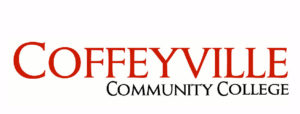 Coffeyville Community College–commonly referred to as Coffeyville College or simply as CCC–is a community college located in Coffeyville, Kansas. Coffeyville Community College was established in 1923, and was among the first of such institutions to be chartered by the State of Kansas. The school was founded at the request of the voters of the Coffeyville school district to provide two years of college for students who, at that time, had graduated from Coffeyville High School. From the beginning, the College has been advised by the University of Kansas and, together, they developed the various courses and departments located within the school. In 1965, the College became a member of the State System of Public Junior Colleges and the name officially became Coffeyville Community Junior College. Soon after, the voters of the southern one-half of Montgomery County voted to expand the college district to include the entire southern half of the county instead of just the City of Coffeyville.
Coffeyville Community College–commonly referred to as Coffeyville College or simply as CCC–is a community college located in Coffeyville, Kansas. Coffeyville Community College was established in 1923, and was among the first of such institutions to be chartered by the State of Kansas. The school was founded at the request of the voters of the Coffeyville school district to provide two years of college for students who, at that time, had graduated from Coffeyville High School. From the beginning, the College has been advised by the University of Kansas and, together, they developed the various courses and departments located within the school. In 1965, the College became a member of the State System of Public Junior Colleges and the name officially became Coffeyville Community Junior College. Soon after, the voters of the southern one-half of Montgomery County voted to expand the college district to include the entire southern half of the county instead of just the City of Coffeyville.
The areas of study available at Coffeyville Community College includes–but is by no means limited to–the following: Agriculture, Art, Athletic Training, Biology, Business Administration, Chemistry, Digital Communications, Education, English and Literature, Family and Consumer Sciences, Foreign Language, Health and Physical Education and Recreation, History, Humanities, Interactive Design, Mathematics, Music, Physics/Physical Science, Political Science, Pre-Engineering, Pre-Law, Pre-Medicine, Pre-Mortuary Science, Pre-Veterinary Medicine, Psychology and Counseling, Sociology and Social Work, Speech and Theatre. These areas of study are all available at the main campus located in Coffeyville, but various other areas of study are available at the school’s satellite locations. Within these areas of study, the school offers many Associate’s degrees and professional certifications, allowing students to either pursue a baccalaureate degree program at a four-year university, or to immediately enter the workforce in a trade or skill-based career upon completion of one of these programs.
Location: Coffeyville, Kansas
In-State Tuition: $960 per year
Website: http://www.coffeyville.edu/
Kentucky – Maysville Community and Technical College
 Maysville Community and Technical College–commonly referred to as Maysville Tech or simply as MCTC–located in Maysville, Kentucky. Maysville Tech is one of 16 two-year, open-admissions colleges which are a part of the Kentucky Community and Technical College System (KCTCS). The school in its present-day state was formed in December 2004 from the consolidation of Maysville Community College (which was established in 1968 and was located in Maysville, Kentucky) and Rowan Technical College (which was established in 1970 and was located in Morehead, Kentucky). MCTC is accredited by the Southern Association of Colleges and Schools (SACS), which is responsible for accrediting schools in the states of Florida, Georgia, Kentucky, Louisiana, Mississippi, North Carolina, South Carolina, Alabama, Tennessee, Texas and Virginia, as well as schools for United States students attending schools in Mexico, the Caribbean, Central America and South America. Maysville Community and Technical College operates many satellite campuses and also offers skill- and trade-based programs at the East Kentucky Correctional Complex in an effort to train and rehabilitate inmates to try and increase the rate of success for inmate reintegration into functional society.
Maysville Community and Technical College–commonly referred to as Maysville Tech or simply as MCTC–located in Maysville, Kentucky. Maysville Tech is one of 16 two-year, open-admissions colleges which are a part of the Kentucky Community and Technical College System (KCTCS). The school in its present-day state was formed in December 2004 from the consolidation of Maysville Community College (which was established in 1968 and was located in Maysville, Kentucky) and Rowan Technical College (which was established in 1970 and was located in Morehead, Kentucky). MCTC is accredited by the Southern Association of Colleges and Schools (SACS), which is responsible for accrediting schools in the states of Florida, Georgia, Kentucky, Louisiana, Mississippi, North Carolina, South Carolina, Alabama, Tennessee, Texas and Virginia, as well as schools for United States students attending schools in Mexico, the Caribbean, Central America and South America. Maysville Community and Technical College operates many satellite campuses and also offers skill- and trade-based programs at the East Kentucky Correctional Complex in an effort to train and rehabilitate inmates to try and increase the rate of success for inmate reintegration into functional society.
The areas of study available at Maysville Community and Technical College main campus in Maysville, Kentucky include the following: Administrative Office Technology, Interdisciplinary Early Childhood Education, Air Conditioning Technology, Electrical Technology, Industrial Maintenance Technology, Medicaid Nurse Aide, Business Administration, Medical Information Technology, Computer & Information Technology, Medical Laboratory Technician, Computerized Manufacturing & Machining, Nursing – Practical Nursing, Nursing – Registered Nurse, Criminal Justice, Medical Assisting, Culinary Arts, Energy Systems Technology, Respiratory Care, General Occupational and Technical Studies. There are even more areas of study available at the school’s various satellite locations such as Cosmetology and Welding Technology. There is a large amount of overlap between the areas of study offered at the satellite campuses with the school’s main campus, in an effort to ensure that students are able to have the same offerings and educational advantages regardless of which campus they attend.
Location: Maysville, Kentucky
In-State Tuition: $3,456 per year
Website: http://maysville.kctcs.edu/
Louisiana – Central Louisiana Technical Community College
 The Louisiana vocational-technical education system originally began as what was and still is known as “trade schools” in the early 1930’s and has since evolved to vocational schools, then to vocational-technical schools, then vocational-technical institutes and, at present, technical college. These name changes came about as a result of a redesigned curriculum, which blends technical and applied academics, and that ultimately leads to a certificate, diploma, and / or the associate of applied science degree. Central Louisiana Technical Community College–commonly referred to as CLTCC–has 36 established programs and serves approximately 1,600 students per semester. The region was comprised of one main campus, six branches, one extension, and seven instructional service centers. Act 506 of the Regular Legislative Session which occurred in 2005 proposed a reorganization of the Louisiana Technical College. LCTCS adopted the 21st Century Model for the Delivery of Technical Education which became effective on July 1, 2006, and the reorganization consists of eight Regional Education Centers.
The Louisiana vocational-technical education system originally began as what was and still is known as “trade schools” in the early 1930’s and has since evolved to vocational schools, then to vocational-technical schools, then vocational-technical institutes and, at present, technical college. These name changes came about as a result of a redesigned curriculum, which blends technical and applied academics, and that ultimately leads to a certificate, diploma, and / or the associate of applied science degree. Central Louisiana Technical Community College–commonly referred to as CLTCC–has 36 established programs and serves approximately 1,600 students per semester. The region was comprised of one main campus, six branches, one extension, and seven instructional service centers. Act 506 of the Regular Legislative Session which occurred in 2005 proposed a reorganization of the Louisiana Technical College. LCTCS adopted the 21st Century Model for the Delivery of Technical Education which became effective on July 1, 2006, and the reorganization consists of eight Regional Education Centers.
The areas of study available at the Central Louisiana Technical Community College’s main campus in Alexandria, Louisiana include degree-granting and certificate-granting programs in the following areas: General Education, Air Conditioning and Refrigeration, Automotive Technology, Carpentry, Collision Repair Technology, Computer Technology, Drafting and Design Technology, Electrician Technology, Forest Technology, Industrial Instrumentation and Electrical Technology, Industrial Manufacturing Technology, Outdoor Power Equipment Technology, Welding Technology, Patient Care Technician (in EKG useage, Phlebotomy or as a Nursing Assistant), Pharmacy Technician, Practical Nursing, Business Office Administration and Criminal Justice. In addition to these offerings, the school’s multiple education centers also have various areas of study available to students that differ from the offerings at the main campus, such as the Emergency Medical Technician program offered at the Lamar Salter campus in Leesville, Louisiana and the Developmental Education program offered at the Oakdale campus located in Oakdale, Louisiana. In addition to these that are available to the general populace, both the Oakdale campus and the Ward H. Nash Avoyelles Campus offer a selection of programs intended for inmates at the Federal Correctional Institute of Oakdale and the Avoyelles Correctional Center respectively. These inmate-only programs include: Masonry, Cabinet and Furniture Construction, Building Technology Specialist and Horticulture.
Location: Alexandria, Louisiana
In-State Tuition: $1,186 per year
Website: http://www.cltcc.edu/
Maine – Northern Maine Community College
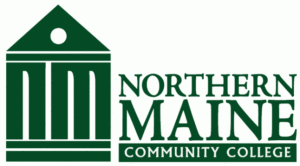 Northern Maine Community College–commonly referred to as NMCC–is a community college located in Presque Isle, Maine and is one of the seven colleges that comprise the Maine Community College System. The school was founded in the year of 1961 on the grounds of the former Presque Isle Air Force Base. The first class enrolled in the college in 1963, two years after the school was first founded. Annually, there are approximately 2,000 students from different walks of life that attend a variety of the 30 plus programs that the Northern Maine Community College has to offers. With a desireable student-faculty ratio of 15:1, students can obtain the personalized education and extra attention that other colleges may not be able to afford their students due to a larger and more unbalanced student-faculty ratio. NMCC is accredited by the New England Association of Schools and Colleges, which is the accrediting body responsible for accreditation for the six-state region of New England which is comprised of Connecticut, Maine, Massachusetts, New Hampshire, Rhode Island and Vermont.
Northern Maine Community College–commonly referred to as NMCC–is a community college located in Presque Isle, Maine and is one of the seven colleges that comprise the Maine Community College System. The school was founded in the year of 1961 on the grounds of the former Presque Isle Air Force Base. The first class enrolled in the college in 1963, two years after the school was first founded. Annually, there are approximately 2,000 students from different walks of life that attend a variety of the 30 plus programs that the Northern Maine Community College has to offers. With a desireable student-faculty ratio of 15:1, students can obtain the personalized education and extra attention that other colleges may not be able to afford their students due to a larger and more unbalanced student-faculty ratio. NMCC is accredited by the New England Association of Schools and Colleges, which is the accrediting body responsible for accreditation for the six-state region of New England which is comprised of Connecticut, Maine, Massachusetts, New Hampshire, Rhode Island and Vermont.
The areas of study available to students to enroll in at Northern Maine Community College include the following: Early Childhood Education, Liberal Studies, Accounting, Business Administration, Entrepreneurship, Office Assistant, Career Studies, Community Paramedicine, Emergency Medical Services, Medical Assisting, Medical Coding and Billing, Nursing, Automotive Collision Repair, Automotive Technology, Building Construction Technology, Career Studies, Computer & Network Technology, Diesel Hydraulics Technology, Electrical Construction and Maintenance, Plumbing and Heating, Precision Machining Technology, Structural Welding, Trade and Technical Occupations and Wind Power Technology. Within these areas of study, students will be able to obtain either an Associate’s degree (either in Arts or Applied Science) or a professional certification, which will allow them to enter into a trade or skill-based career upon successful completion of the chosen program. In addition to these areas of study, Northern Maine Community College also provides a High School to College course that is designed to help students make the sometimes difficult task of transitioning into their postsecondary education.
Location: Presque Isle, Maine
In-State Tuition: $2,640 per year
Website: www.nmcc.edu/
Maryland – Baltimore City Community College
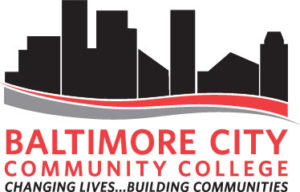 Baltimore City Community College–commonly referred to as Baltimore Community or simply as BCCC–is the only community college located in the city of Baltimore, Maryland, and is the only State-sponsored community college in the state of Maryland. The school is accredited by the Middle States Commission on Higher Education (MSCHE), which is the U.S. Department of Education-recognized regional accrediting body that is responsible for accrediting postsecondary institutes in the states of New York, New Jersey, Pennsylvania, Delaware and Maryland; the District of Columbia, (Washington, D.C.), plus the American territories/commonwealths of Puerto Rico and the U.S. Virgin Islands. The school was founded in 1947. While BCCC primarily serves the residential and business community of Baltimore, it also offers various opportunities on all educational levels to all of the citizens of the state of Maryland. These educational opportunities enable students to obtain better paying jobs, transfer to four-year colleges to enroll into a baccalaureate program or to enroll into short-term training programs designed to supplement their current professional skills or to acquire entirely new ones.
Baltimore City Community College–commonly referred to as Baltimore Community or simply as BCCC–is the only community college located in the city of Baltimore, Maryland, and is the only State-sponsored community college in the state of Maryland. The school is accredited by the Middle States Commission on Higher Education (MSCHE), which is the U.S. Department of Education-recognized regional accrediting body that is responsible for accrediting postsecondary institutes in the states of New York, New Jersey, Pennsylvania, Delaware and Maryland; the District of Columbia, (Washington, D.C.), plus the American territories/commonwealths of Puerto Rico and the U.S. Virgin Islands. The school was founded in 1947. While BCCC primarily serves the residential and business community of Baltimore, it also offers various opportunities on all educational levels to all of the citizens of the state of Maryland. These educational opportunities enable students to obtain better paying jobs, transfer to four-year colleges to enroll into a baccalaureate program or to enroll into short-term training programs designed to supplement their current professional skills or to acquire entirely new ones.
The areas of study available at Baltimore City Community College are diverse and many, and include 16 certificate-granting programs, such as: Accounting, Addiction Counseling, Allied Human Services, Biotechnology Lab Science, Coding Specialist, Construction Supervision, Cyber Security and Assurance, Early Childhood Education, Lab Animal Science, Practical Nursing and Special Education Assistant. In addition to these 16 certifications, the school also has 29 Associate degree programs available, including: Biotechnology, Computer Information Systems, Computer-Aided Drafting and Design, Construction Supervision, Cyber Security and Assurance, Dental Hygiene, Early Childhood Education, Electrical Engineering, Fashion Design and a General Studies Transfer program. BCCC also offers continuing education programs such as General Educational Development (GED®) to students seeking a High School Diploma. In addition, the College offers English as a Second Language (ESL) instruction to students wanting to strengthen their language skills and Adult Basic Education (ABE) to those students wanting to gain literacy skills. The College’s Business and Continuing Education Division (BCED) partners with local business and industry to offer cost effective, state-of-the-art contract and customized training, apprenticeships and other workforce development training.
Location: Baltimore, Maryland
In-State Tuition: $2,112 per year
Website: http://www.bccc.edu/
Massachusetts – Massachusetts Bay Community College
 Massachusetts Bay Community College–commonly referred to as MassBay or simply MBCC–is a two-year college located in Middlesex County, Massachusetts. The school has three campuses. The main campus in Wellesley, a secondary campus located in Ashland and a tertiary campus located in Framingham. The college is home to the Wellesley Symphony Orchestra, which is an amateur American orchestra that has presented classical, pop music and family concerts since 1948. Massachusetts Bay Community College was founded in the year of 1961 and was housed in temporary locations in both Boston and Watertown. In the year of 1973, the Massachusetts Board of Regional Community Colleges chose the property of the Elizabeth Seton High School which was located in Wellesley for MassBay’s permanent campus. MassBay’s main campus has been located in Wellesley since then, but has grown significantly in the 40 plus years since the move took place.
Massachusetts Bay Community College–commonly referred to as MassBay or simply MBCC–is a two-year college located in Middlesex County, Massachusetts. The school has three campuses. The main campus in Wellesley, a secondary campus located in Ashland and a tertiary campus located in Framingham. The college is home to the Wellesley Symphony Orchestra, which is an amateur American orchestra that has presented classical, pop music and family concerts since 1948. Massachusetts Bay Community College was founded in the year of 1961 and was housed in temporary locations in both Boston and Watertown. In the year of 1973, the Massachusetts Board of Regional Community Colleges chose the property of the Elizabeth Seton High School which was located in Wellesley for MassBay’s permanent campus. MassBay’s main campus has been located in Wellesley since then, but has grown significantly in the 40 plus years since the move took place.
The areas of study available through Massachusetts Bay Community College’s main campus include the following degree- and certificate-granting programs: Nursing, Radiologic Technology, Central Processing Technology, Emergency Medical Technician (EMT), Medical Coding and Billing, Medical Office Administrative Assistant, Paramedicine, Phlebotomy, Practical Nursing, Surgical Technology, General Studies, Liberal Arts, Communication, English, Psychology and Sociology, Global Studies, Automotive Technology BMW-Focused, Automotive Technology Chrysler-Focused, Automotive Technology General Motors-Focused, Automotive Technology Toyota Lexus-Focused, Biotechnology, Marine Biotechnology, Forensic DNA Science, Life Sciences, Environmental Sciences and Safety, Bioinformatics, Computer Information Systems, Computer Science, Information Systems Technology and Management: Management, Information Systems Technology and Management: Technology, Engineering, Engineering Design, Electrical and Computer Engineering, Electronics Technology, Mechanical Engineering, Cyber Security and Web Design among many others. In addition to these Associate degree-granting and professional certification-granting programs, the school also provides a Mentoring Program. The Mentoring Program came from a partnership between MassBay and Framingham State University in an effort to bring students and local industry partners together for dynamic and collaborative initiative that helps to facilitate one-on-one mentoring relationships and to provide quality, tangible skill-based mentoring and networking mentoring throughout the year.
Location: Wellesley, Massachusetts
In-State Tuition: $576 per year
Website: http://www.massbay.edu/
Michigan – Wayne County Community College District
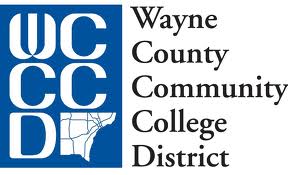 Wayne County Community College District–commonly referred to as WCCCD–is a community college district with its headquarters in Downtown Detroit, Michigan. The College District was founded in the year of 1967. The College District has six different campuses: Eastern Detroit, Downtown Detroit, Downriver, Northwest Detroit, Western Detroit and University Square. The College’s six campuses are located in industrial, rural and metropolitan areas. The College was established in 1967 by the Legislature of the State of Michigan, and its initial seven-member Board of Trustees was elected the following year. The new College had no buildings or facilities of its own, but with the cooperation of local school boards, classrooms were made available throughout the County of Wayne. In the summer of 1969, the Board of Trustees directed the staff to set up classes for the first fall semester. Instructors were hired, curricula were designed and the College opened its doors. Because of the socioeconomic, industrial and professional sectors of the school’s service areas, WCCCD places a strong emphasis on both occupational and career programs, along with traditional college and university transfer programs, including those that fall within the liberal arts discipline.
Wayne County Community College District–commonly referred to as WCCCD–is a community college district with its headquarters in Downtown Detroit, Michigan. The College District was founded in the year of 1967. The College District has six different campuses: Eastern Detroit, Downtown Detroit, Downriver, Northwest Detroit, Western Detroit and University Square. The College’s six campuses are located in industrial, rural and metropolitan areas. The College was established in 1967 by the Legislature of the State of Michigan, and its initial seven-member Board of Trustees was elected the following year. The new College had no buildings or facilities of its own, but with the cooperation of local school boards, classrooms were made available throughout the County of Wayne. In the summer of 1969, the Board of Trustees directed the staff to set up classes for the first fall semester. Instructors were hired, curricula were designed and the College opened its doors. Because of the socioeconomic, industrial and professional sectors of the school’s service areas, WCCCD places a strong emphasis on both occupational and career programs, along with traditional college and university transfer programs, including those that fall within the liberal arts discipline.
The areas of study available at Wayne County Community College District’s main campus in Downtown Detroit, Michigan include the following Associate degree-granting and professional certification-granting programs: Accounting, Addiction Studies, Alternative Fuels Technology, American Sign Language, Anesthesia Technology, Auto Body Technology, Automotive Service Technology, Aviation Mechanics: Airframe and Powerplant, Biomedical Equipment Repair Technology, Bookkeeping, Business Administration, Computer Information Systems, Computer Numerical Control, Business Analytics, Computer Network Administrator, Computer Support Specialist, Database Administrator, Website Developer, Video Game Design and Animation, Criminal Justice: Corrections, Criminal Justice: Law Enforcement, Criminal Justice: Public and Private Security, Dental Assisting, Dental Hygiene, Digital Media Production, Digital Photography Technology, Early Childhood Education, Electrical Electronics Engineering Technology, Computer Technology, Programmable Logic Controllers, Emergency Medical Technology, Emergency Room and Multi-Skill Healthcare Technology, Entrepreneurship and Gerontology among many others across many more fields of study.
Location: Downtown Detroit, Michigan
In-State Tuition: $2,712 per year
Website: http://www.wcccd.edu/
Minnesota – Pine Technical College
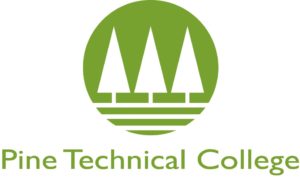 Pine Technical and Community College–commonly referred to as Pine Tech or simply as PTCC–is a two-year college located in Pine City, Minnesota. PTCC is a member of the Minnesota State Colleges and Universities System, which is comprised of 31 state universities, community colleges and technical colleges throughout the state of Minnesota. The Minnesota State Colleges and Universities System serves approximately 277,000 students per year in credit-based courses and an additional 157,000 students in noncredit courses across the 31 system members’ programs of study. Pine Technical College was established in 1965 as the 24th Minnesota-area vocational-technical school with a focus on providing students with occupational, educational and technical expertise. The local Pine City School Board of Education worked closely with the Minnesota Department of Education from 1963 to 1965 to obtain necessary approvals needed to establish an area vocational-technical school in Pine City.
Pine Technical and Community College–commonly referred to as Pine Tech or simply as PTCC–is a two-year college located in Pine City, Minnesota. PTCC is a member of the Minnesota State Colleges and Universities System, which is comprised of 31 state universities, community colleges and technical colleges throughout the state of Minnesota. The Minnesota State Colleges and Universities System serves approximately 277,000 students per year in credit-based courses and an additional 157,000 students in noncredit courses across the 31 system members’ programs of study. Pine Technical College was established in 1965 as the 24th Minnesota-area vocational-technical school with a focus on providing students with occupational, educational and technical expertise. The local Pine City School Board of Education worked closely with the Minnesota Department of Education from 1963 to 1965 to obtain necessary approvals needed to establish an area vocational-technical school in Pine City.
The areas of study available to students at Pine Technical College include: an Associate of Arts degree in General Studies which is used for transferring to a four-year university, Advanced Manufacturing Technology, Robotics and Automation, Automotive Technology, Accounting, Business Administration, Business Technology, Entrepreneurship, Computer Programming, Computer Science, Cyber-Security, Network Administration, Early Childhood Development, Human Services Eligibility Worker, Human Services Child Support Worker, Gunsmithing and Firearms Technology, Healthcare Pre-Professional, Health Sciences, Medical Assistant, Nursing, Nursing Assistant, Practical Nursing, Trained Medication Aide and American Sign Language. PTCC’s most notable programs in the listed areas of study are the American Sign Language and their Gunsmithing Technology programs as these two programs have garnered the school a lot of recognition for both the quality of the programs themselves and due to the limited availability of schools offering one or both of these programs. In addition to these programs, the school also offers students a free on-site childcare facility and outstanding Student Counseling Services which will help them plan both their academic and professional careers out.
Location: Pine City, Minnesota
In-State Tuition: $2,424 per year
Website: http://www.pine.edu/
Mississippi – East Central Community College
 East Central Community College–commonly referred to as ECCC–is a junior college located in Decatur, Mississippi. ECCC serves a five-county district: Leake, Neshoba, Newton, Scott and Winston counties. The school was founded in September in the year of 1928, providing the school with more than 80 years of experience in providing both an affordable and quality education to residents within the school’s service area. East Central Community College is accredited by Southern Association of Colleges and Schools Commission on Colleges to award Associate’s degrees to students upon successful completion of an eligible program. The school is highly committed to providing enrolled students with the knowledge and skills necessary to not only become successful in their chosen fields, but to make a positive impact within their communities and in the world as a whole. They achieve this through dynamic coursework and dedicated faculty.
East Central Community College–commonly referred to as ECCC–is a junior college located in Decatur, Mississippi. ECCC serves a five-county district: Leake, Neshoba, Newton, Scott and Winston counties. The school was founded in September in the year of 1928, providing the school with more than 80 years of experience in providing both an affordable and quality education to residents within the school’s service area. East Central Community College is accredited by Southern Association of Colleges and Schools Commission on Colleges to award Associate’s degrees to students upon successful completion of an eligible program. The school is highly committed to providing enrolled students with the knowledge and skills necessary to not only become successful in their chosen fields, but to make a positive impact within their communities and in the world as a whole. They achieve this through dynamic coursework and dedicated faculty.
The areas of study available at East Central Community College fall under three programs of study: University Transfer Programs/Academic Concentrations, Workforce Education and Healthcare Education. The areas of study within these programs include: an Associate degree in Nursing (RN), Practical Nursing (LPN), LPN to Bridge, Paramedic Technology (EMT), Surgical Technology, Cosmetology, Welding and Cutting, Carpentry Technology, Automotive Mechanics Technology, Collision Repair Technology, Business Technology, Computer Network Support Technology, Culinary Arts Technology, Drafting and Design Technology, Early Childhood Education, Electrical Technology, Heating and Air Conditioning Technology, Precision Machining and Manufacturing Technology and Hotel and Restaurant Management Technology among others. In addition to these programs, the school offers numerous dual-degree program opportunities to high school students that are currently attending a school located within the school’s five-county service area and East Central Community College also provides adult learners with Adult Basic Education (ABE) classes in Leake, Neshoba, Newton, Scott, and Winston counties. These classes are available to the general public of Mississippi who are beyond the compulsory school age in literacy training. The school also provides adult learners with GED® Testing Preparation courses and English as a Second Language (ESL) courses. East Central Community College is also a State designated and approved GED® testing facility.
Location: Decatur, Mississippi
In-State Tuition: $1,980 per year
Website: http://www.eccc.edu/
Missouri – East Central College
 East Central College–commonly referred to as East Central or simply as ECC–is a comprehensive community college with five campus locations located in East-Central Missouri in the St. Louis metropolitan area. The main campus is located in Union, Missouri. In addition, ECC also offers classes in Sullivan, Rolla, Washington and Warrenton. Approximately 4,400 students are enrolled in classes each semester at the five locations or through dual credit classes at area high schools. ECC is accredited by The Higher Learning Commission, which is a United States Department of Education- and Council for Higher Education Accreditation-recognized accrediting body. East Central College was founded in the year of 1968 to serve the educational needs of the people in East-Central Missouri. Classes began in various rented facilities at the Union Memorial Auditorium in September of 1969 with an enrollment of 476 students for the first semester. The Administration Building, completed in 1971, was the first building that was completed. By January of 2009, the final building on the school’s campus–The Health & Science Building–was completed.
East Central College–commonly referred to as East Central or simply as ECC–is a comprehensive community college with five campus locations located in East-Central Missouri in the St. Louis metropolitan area. The main campus is located in Union, Missouri. In addition, ECC also offers classes in Sullivan, Rolla, Washington and Warrenton. Approximately 4,400 students are enrolled in classes each semester at the five locations or through dual credit classes at area high schools. ECC is accredited by The Higher Learning Commission, which is a United States Department of Education- and Council for Higher Education Accreditation-recognized accrediting body. East Central College was founded in the year of 1968 to serve the educational needs of the people in East-Central Missouri. Classes began in various rented facilities at the Union Memorial Auditorium in September of 1969 with an enrollment of 476 students for the first semester. The Administration Building, completed in 1971, was the first building that was completed. By January of 2009, the final building on the school’s campus–The Health & Science Building–was completed.
The areas of study that confer upon students either an Associate’s degree or a professional certification upon program completion that are available at East Central College are many and varied, and they include: Biology, Biotechnology, Chemistry, Engineering, Environmental Science, Geology, Health Information Management, Health Science, Medical Assistant, Medical Science, Physics and Physical Science, Accounting, Automotive Technology, Building Construction, Business, Business Management and Technology, Computer Information Systems and Networking, Culinary Arts, Economics, HVAC/R, Industrial Engineering Technology, Precision Machining Technology, Welding, Anthropology, Criminal Justice, Education, History / Political Science and Geography, Physical Education, Psychology and Sociology, Art, Graphic Design and Multimedia, Communications and Theatre, Music, Philosophy and Religion, Mass Media Communications, English, Journalism, Mathematics, Reading, Fire Technology, Nursing, Occupational Therapist Assistant, Paramedic Technology and Radiologic Technology among others.
Location: Union, Missouri
In-State Tuition: $2,544 per year
Website: http://www.eastcentral.edu/
Montana – Helena College University of Montana
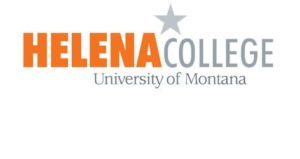 Helena College University of Montana–commonly referred to as UM Helena, Helena College UM or simply as UMHC–is a two-year college that is located unsurprisingly in Helena, Montana. The school was established in the year of 1939, and was previously known as The University of Montana – Helena College of Technology, the Helena College of Technology and the Helena Vocational-Technical Center during the span of its existence. Helena College UM is a community-focused education institution with most enrolling students coming from Lewis & Clark and neighboring counties around the school. Helena College is accredited by the Northwest Commission on Colleges and Universities (NWCCU). The NWCCU is an independent, not-for-profit accrediting body that is recognized by both the U.S. Department of Education and the Council for Higher Education as the regional authority on educational quality and institutional effectiveness of higher education institutions in the seven-state Northwest region which is made up of Alaska, Idaho, Montana, Nevada, Oregon, Utah and Washington.
Helena College University of Montana–commonly referred to as UM Helena, Helena College UM or simply as UMHC–is a two-year college that is located unsurprisingly in Helena, Montana. The school was established in the year of 1939, and was previously known as The University of Montana – Helena College of Technology, the Helena College of Technology and the Helena Vocational-Technical Center during the span of its existence. Helena College UM is a community-focused education institution with most enrolling students coming from Lewis & Clark and neighboring counties around the school. Helena College is accredited by the Northwest Commission on Colleges and Universities (NWCCU). The NWCCU is an independent, not-for-profit accrediting body that is recognized by both the U.S. Department of Education and the Council for Higher Education as the regional authority on educational quality and institutional effectiveness of higher education institutions in the seven-state Northwest region which is made up of Alaska, Idaho, Montana, Nevada, Oregon, Utah and Washington.
The areas of study available at Helena College University of Montana cover a wide-range of interests and are made up of a myriad of programs of study, which include: Bookkeeping, Accounting, Small Business Entrepreneurship, Small Business Management, Human Resource Specialist, Automotive Technology, Aviation Maintenance Technology, Computer Aided Manufacturing, Computer Software Professional, Computer Assistant, Network Administration, Programming, Webmaster, Diesel Technology, Fire and Rescue, Business Administration, Interior Space Planning and Design, Mental Health Direct Care, Pre-Pharmacy, Elementary Education, Geoscience Technology, Metallurgical Technology, Practical Nursing, Medical Assisting, Computer Skills Specialist, Legal Support Specialist, Medical Administrative Specialist, Administrative Office Management Specialist and Welding Technology. In addition to these programs of study, Helena College University of Montana offers students the opportunity to obtain a Bachelor of Applied Science in Business, a Bachelor of Science in Business and Information Technology or an Associate of Applied Science in Early Childhood Education.
Location: Helena, Montana
In-State Tuition: $2,358 per year
Website: http://www.umhelena.edu/
Nebraska – Western Nebraska Community College
![]() Western Nebraska Community College–commonly referred to as WNCC–is a community college located in Scottsbluff, Nebraska. WNCC also has two other campuses, one located in Sidney, Nebraska and and one in Alliance, Nebraska. Western Nebraska Community College was originally established in Scottsbluff, Nebraska in September of 1926, with the purpose of being an extension of the University of Nebraska. WNCC was originally named Scottsbluff Junior College. The College became inactive after only one year and was reopened in September 1929, as part of the Scottsbluff Public Schools System. The College operated as part of that system until September 1932, when it became a public, two-year institution. In June 1968, Scotts Bluff County College became Nebraska Western College. The school became Scottsbluff’s only non-parochial institution of higher education (which means it was the only school that was nonsectarian in that the school did not have any religious affiliations) in 1971 when the only other non-parochial school in the state closed down. The school’s name was changed to Western Nebraska Community College in 1988.
Western Nebraska Community College–commonly referred to as WNCC–is a community college located in Scottsbluff, Nebraska. WNCC also has two other campuses, one located in Sidney, Nebraska and and one in Alliance, Nebraska. Western Nebraska Community College was originally established in Scottsbluff, Nebraska in September of 1926, with the purpose of being an extension of the University of Nebraska. WNCC was originally named Scottsbluff Junior College. The College became inactive after only one year and was reopened in September 1929, as part of the Scottsbluff Public Schools System. The College operated as part of that system until September 1932, when it became a public, two-year institution. In June 1968, Scotts Bluff County College became Nebraska Western College. The school became Scottsbluff’s only non-parochial institution of higher education (which means it was the only school that was nonsectarian in that the school did not have any religious affiliations) in 1971 when the only other non-parochial school in the state closed down. The school’s name was changed to Western Nebraska Community College in 1988.
The areas of study available at Western Nebraska Community College provide a large catalogue of degree-granting and certification-granting programs of study, including: Accounting Assistant, Accounting Specialist, Pre-Agricultural Science, Anthropology, Art, Pre-Athletic Training, Auto Body Technology, Automotive Technology, Aviation Maintenance Technician, Biology and Ecology, Pre-Biomedical Research, Business Administration, Accounting, Business Information Systems, Business Technology, Chemistry, Pre-Chiropractic Medicine, Commercial Driver License (CDL), Communication Studies, Computer Science, Computer Technical Support Specialist, Criminal Justice, Pre-Dental Hygiene, Pre-Dentistry, Dietetics, Economics, Art Education, Early Childhood Education, Music Education, Elementary and Secondary Education, Emergency Medical Technician (EMT), Pre-Engineering, English, Pre-Food Science, Pre-Forestry and Wildlife Management, French Language, General Studies, Geography, Health Information Technology and Coding Technology, History, Human Services, Information Processing, Information Technology, Journalism, Pre-Law, Law Enforcement, Management Assistant, Marketing and Mathematics among many others in a wide-range of different areas of interests.
Location: Scottsbluff, Nebraska
In-State Tuition: $1,992 per year
Website: http://www.wncc.edu/
Nevada – Western Nevada College
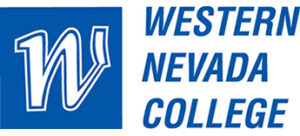 Western Nevada College–commonly referred to as WNC–is a public college serving Northwest Nevada and the school’s main campus is located in Carson City, Nevada and with other campuses located in the cities of Fallon and Minden. There are also WNC instruction centers in Dayton, Fernley, Hawthorne, Lake Tahoe, Lovelock, Smith Valley and Yerington, as well as degree programs that provide skill-based training and education to inmates of five different correctional institutions. The school is fully accredited by the Northwest Association of Schools and of Colleges and Universities. Prior to July of 2007, Western Nevada College was known as Western Nevada Community College. The name change was approved by the Nevada System of Higher Education Board of Regents in recognition of Western Nevada College’s ability to confer upon enrolled students niche Bachelor degrees upon successful completion of a handful of four-year degree programs that the school offers.
Western Nevada College–commonly referred to as WNC–is a public college serving Northwest Nevada and the school’s main campus is located in Carson City, Nevada and with other campuses located in the cities of Fallon and Minden. There are also WNC instruction centers in Dayton, Fernley, Hawthorne, Lake Tahoe, Lovelock, Smith Valley and Yerington, as well as degree programs that provide skill-based training and education to inmates of five different correctional institutions. The school is fully accredited by the Northwest Association of Schools and of Colleges and Universities. Prior to July of 2007, Western Nevada College was known as Western Nevada Community College. The name change was approved by the Nevada System of Higher Education Board of Regents in recognition of Western Nevada College’s ability to confer upon enrolled students niche Bachelor degrees upon successful completion of a handful of four-year degree programs that the school offers.
The areas of study available to students through Western Nevada College include the following programs: Accounting, Agricultural Science, Air Conditioning, American Sign Language, Applied Industrial Technology, Automotive Auto Body, Automotive Mechanics, Building Inspection, Business, CISCO Technology, Civil Engineering, Computer Aided Drafting, Computer Applications, Computer Information Technology, Computer Office Technology, Construction, Construction Management, Counseling and Educational Psychology, Counseling and Personal Development, Criminal Justice, Drafting, Early Childhood Education, Economics, Education, Educational Professional Development, Electrical Theory, Electronics Technology, Energy, Entrepreneurship, Finance, Graphic Communications, Human Development and Family Studies, Informatics, Information Systems, Machine Tooling Technology, Management, Marketing, Mechanical Technology, Power Equipment Technician, Real Estate, Recreation and Physical Education, Senior Computing, Surveying, Welding and Woodworking among many others in various areas of study such as Liberal Arts, Nursing and Allied Health and the Performing and Visual Arts. In addition to these degree-awarding and certification-awarding programs, Western Nevada College also provides non-certificate and non-degree granting courses such as Driver Education, Motorcycle Safety and a Economic and Workforce Development course.
Location: Carson City, Nevada
In-State Tuition: $2,265 per year
Website: http://www.wnc.edu/
New Hampshire – River Valley Community College
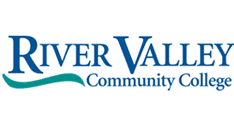 River Valley Community College–commonly referred to as RVCC–is a two-year community college with campuses in Lebanon, Keene and the school’s main campus in Claremont, New Hampshire. The school is a part of the Community College System of New Hampshire and is accredited by the New England Association of Schools and Colleges, which is a United States Department of Education and Council for Higher Education Accredited recognized regional accrediting body. The school was established as the New Hampshire Community Technical College at Claremont in the year 1968. After various name changes due to a shift in the quality and type of education provided, the school was finally named River Valley Community College. The college’s third location in Lebanon, New Hampshire opened in January of 2016 in the former Lebanon College building, which was a two-year private and not-for-profit college that was founded in 1956 and closed in August of 2014 due to financial difficulties.
River Valley Community College–commonly referred to as RVCC–is a two-year community college with campuses in Lebanon, Keene and the school’s main campus in Claremont, New Hampshire. The school is a part of the Community College System of New Hampshire and is accredited by the New England Association of Schools and Colleges, which is a United States Department of Education and Council for Higher Education Accredited recognized regional accrediting body. The school was established as the New Hampshire Community Technical College at Claremont in the year 1968. After various name changes due to a shift in the quality and type of education provided, the school was finally named River Valley Community College. The college’s third location in Lebanon, New Hampshire opened in January of 2016 in the former Lebanon College building, which was a two-year private and not-for-profit college that was founded in 1956 and closed in August of 2014 due to financial difficulties.
The areas of study available to students at River Valley Community College’s various campuses cover a wide-range of interests and the degree-granting programs and certificate-granting programs within these areas of study include: Accounting, Advanced Manufacturing Technology, Biological Sciences, Business Management, Computer Technology – Networking Option, Computer Technology – Website Design Option, Creative Writing, Cybersecurity and Healthcare IT, Criminal Justice, Early Childhood Education, Early Intervention and Family Support Assistant, Engineering, Family Child Care Provider, and General Studies among others. In addition to these programs, River Valley Community College also provides high school students that attend participating high schools with access to a program called The Running Start Program. The Running Start Program allows high school students to enroll in RVCC courses taught at their own high school by their own high school teachers. This dual-enrollment program provides these students with both high school and college credit for these courses. College credits obtained in this manner may be used towards completion of a degree, diploma or certificate at RVCC or credits may be transferred to other colleges and universities throughout the country.
Location: Claremont, New Hampshire
In-State Tuition: $6,720 per year
Website: http://www.rivervalley.edu/
New Jersey – Warren County Community College
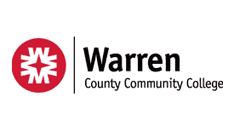 Warren County Community College–commonly referred to as WCCC–is a coeducational, two-year, public community college located in Warren County, New Jersey, with its main campus located in the Washington Township. Warren County Community College was established in July of 1981 by the New Jersey Commission on Higher Education and the Warren County Board of Chosen Freeholders. In the school’s earliest years it operated as a “College without Walls” and held classes in the classrooms of local high schools after hours. In 1987, the New Jersey State Board of Higher Education provided WCCC with degree-granting authority and a temporary facility in which to hold classes. In 1988, WCCC graduated its first class and in 1992, WCCC was accredited by the Middle States Association of Colleges and Schools, which is a United States Department of Education recognized regional accreditor. In January 1996, the College moved into its current building on Route 57 in Washington Township. The college opened a second campus in Phillipsburg, New Jersey in September of 2011.
Warren County Community College–commonly referred to as WCCC–is a coeducational, two-year, public community college located in Warren County, New Jersey, with its main campus located in the Washington Township. Warren County Community College was established in July of 1981 by the New Jersey Commission on Higher Education and the Warren County Board of Chosen Freeholders. In the school’s earliest years it operated as a “College without Walls” and held classes in the classrooms of local high schools after hours. In 1987, the New Jersey State Board of Higher Education provided WCCC with degree-granting authority and a temporary facility in which to hold classes. In 1988, WCCC graduated its first class and in 1992, WCCC was accredited by the Middle States Association of Colleges and Schools, which is a United States Department of Education recognized regional accreditor. In January 1996, the College moved into its current building on Route 57 in Washington Township. The college opened a second campus in Phillipsburg, New Jersey in September of 2011.
The areas of study available at Warren County Community College cover a range of areas of interest and are made up by numerous certification-granting programs, including: Business Management, Communications, Computer Information Systems, Criminal Justice, Early Childhood Education, Graphic and Web Design, Legal Assistant, Security and Loss Prevention, Small Business Management, Webmaster. The school also has numerous degree-granting programs available, including: Accounting Management, Automotive Technology, Biology, Business Administration, Business Management, Chemistry, Communications, Computer and Information Sciences, Computer Information Services, Creative Writing, Criminal Justice, Early Childhood Education, Elementary and Secondary Education, English, Environmental Studies, Fine Arts, Fire Services, Food and Beverage Management, Graphic Design and Web Design, History, Legal Assistant, Liberal Arts, Medical Assisting, Nurse Education, Occupational Therapy Assistant, Pre-Law, Psychosocial Rehabilitation and Treatment, Respiratory Care, Science, Small Business Management, Social Science, Technical Studies, Technical Studies – VIPER and Web Development.
Location: Washington Township, New Jersey
In-State Tuition: $2,976 per year
Website: http://www.warren.edu/
New Mexico – San Juan College
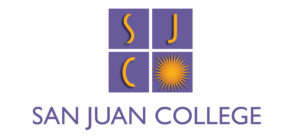 San Juan College–commonly referred to as SJC–is a community college located in Farmington, New Mexico. The school was founded in 1956 as a branch of the New Mexico College of Agriculture and Mechanical Arts. In July of 1965, the Farmington Board of Education allowed the college use of a building on North Wall Avenue near downtown Farmington. This space provided for full-time day and evening instruction; however, laboratories and other special facilities at Farmington High School were still used for evening instruction. During the 1966-67 school year, applications for a federal grant to assist in the construction of a separate facility for a branch campus were prepared and approved. Thus, San Juan Branch had a permanent site in the northern part of Farmington. In 1981, following a county election, the San Juan Branch became an independant community college after 25 years of filling the role as a branch to New Mexico College of Agriculture and Mechanical Arts.
San Juan College–commonly referred to as SJC–is a community college located in Farmington, New Mexico. The school was founded in 1956 as a branch of the New Mexico College of Agriculture and Mechanical Arts. In July of 1965, the Farmington Board of Education allowed the college use of a building on North Wall Avenue near downtown Farmington. This space provided for full-time day and evening instruction; however, laboratories and other special facilities at Farmington High School were still used for evening instruction. During the 1966-67 school year, applications for a federal grant to assist in the construction of a separate facility for a branch campus were prepared and approved. Thus, San Juan Branch had a permanent site in the northern part of Farmington. In 1981, following a county election, the San Juan Branch became an independant community college after 25 years of filling the role as a branch to New Mexico College of Agriculture and Mechanical Arts.
The areas of study available at San Juan College include various degree- and certificate-granting programs of study. Some of the degree-granting programs include: Accounting, Auto Body, Automotive Technology, Building Trades, Business Administration, Civil Drafting and Design, Cosmetology, Dental Hygiene, Diesel Technology, Digital Media Arts and Design, Fire Science, Geographic Information Systems Technology, Health Information Technology, Horticulture in a Xeric Environment, Horticulture Landscape Architecture, Criminal Justice Studies, Human Services Generalist Studies, Substance Abuse Studies, Industrial Maintenance Mechanic, Industrial Process Operator, Instrumentation Control and Electrical, Legal Assistant, Mechanical Drafting and Design, Medical Laboratory Technician, Natural Gas Compression Technology, Occupational Safety, Occupational Therapy Assistant, Paramedic, Petroleum Production Operations, Physical Therapist Assistant, Respiratory Therapy, Surgical Technology and Technical Theatre. Some of the certificate-granting programs include: Welding, Police Science, Phlebotomy, Occupational Safety, Horticulture and Cosmetology certifications.
Location: Farmington, New Mexico
In-State Tuition: $984 per year
Website: http://www.sanjuancollege.edu/
New York – Dutchess Community College
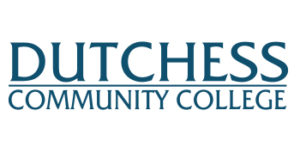 Dutchess Community College–commonly referred to as SUNY Dutchess, Dutchess or simply as DCC–is one of 30 community colleges located within the State University of New York system (SUNY). The school’s main campus is located in Dutchess County, New York, and is situated on a hill above the town of Poughkeepsie. In addition to the school’s main campus, DCC operates a satellite center at DCC South in Wappingers Falls, New York which serves residents of the southern part of the county. The college was founded in the year of 1957 on the site of a former tuberculosis hospital which now makes up Bowne Hall, which serves as the school’s main administrative building. One-third of all Dutchess County college-bound high school graduates attend Dutchess Community College each year and the majority of the school’s alumni live and work in the Hudson Valley area. Many of the school’s alumni have become civic and community leaders in their towns, villages and counties.
Dutchess Community College–commonly referred to as SUNY Dutchess, Dutchess or simply as DCC–is one of 30 community colleges located within the State University of New York system (SUNY). The school’s main campus is located in Dutchess County, New York, and is situated on a hill above the town of Poughkeepsie. In addition to the school’s main campus, DCC operates a satellite center at DCC South in Wappingers Falls, New York which serves residents of the southern part of the county. The college was founded in the year of 1957 on the site of a former tuberculosis hospital which now makes up Bowne Hall, which serves as the school’s main administrative building. One-third of all Dutchess County college-bound high school graduates attend Dutchess Community College each year and the majority of the school’s alumni live and work in the Hudson Valley area. Many of the school’s alumni have become civic and community leaders in their towns, villages and counties.
The areas of study available to students attending Dutchess Community College cover a wide-range of different disciplines and areas of interests, with over 60 different academic programs that confer either a degree or certification to students upon successful completion of one of these programs. Some of the 60 academic programs that students can choose from include: Architectural Technology, Construction Technology Management, Art Studies, Visual Arts, Aviation Management, Aviation Sciences – Pilot, Accounting, Business Administration, Paralegal, Bookkeeping, Computer Information Systems, C++ and Java Advanced Programming, Computer Networking, Computer Software Support, Web Administration, Information Management, Criminal Justice, Early Childhood Development, Early Childhood Caregiver, Electrical Technologies, Engineering Science, Telecommunications Technology – Verizon-focused, Advanced Science and Mathematics Studies, Air Conditioning and Refrigeration Technology, Exercise Science and Wellness, Fire and Occupational Safety, General Studies, Chemical Dependency Counseling, Biology, Chemistry, Earth Sciences, English, French, History and Social Studies, Mathematics, Spanish and Phlebotomist among many others.
Location: Fairview, New York
In-State Tuition: $3,200 per year
Website: http://www.sunydutchess.edu/
North Carolina – Randolph Community College
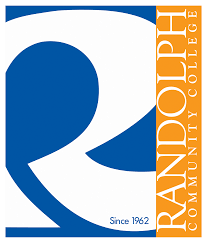 Randolph Community College–commonly referred to as RCC–is a public two-year community college located in Randolph County, North Carolina, and is a member institution of the North Carolina Community College System. The college opened in September of 1962 under the name Randolph Industrial Education Center as a joint city-county industrial education center with an initial count of 75 full time students. The college became a member of the North Carolina Community College System in 1963 when the North Carolina legislature established a separate system of community colleges. From 1965 through 1979 the school was known as Randolph Technical Institute, and as Randolph Technical College from 1979 to 1988. It adopted the name Randolph Community College in 1988.
Randolph Community College–commonly referred to as RCC–is a public two-year community college located in Randolph County, North Carolina, and is a member institution of the North Carolina Community College System. The college opened in September of 1962 under the name Randolph Industrial Education Center as a joint city-county industrial education center with an initial count of 75 full time students. The college became a member of the North Carolina Community College System in 1963 when the North Carolina legislature established a separate system of community colleges. From 1965 through 1979 the school was known as Randolph Technical Institute, and as Randolph Technical College from 1979 to 1988. It adopted the name Randolph Community College in 1988.
The areas of study available for students to choose from at Randolph Community College include degree-granting and certificate-granting programs such as: Accounting, Advertising and Graphic Design, Business Administration, Human Resources Management, Healthcare Management Technologies, Interior Design, Medical Office Administration, Commercial Photography, Photojournalism, Portrait Studio Management, Criminal Justice Technology, Early Childhood Education, Funeral Service Education, Humanities and Fine Arts, Social and Behavioral Sciences, Automotive Systems Technology, Collision Repair and Refinishing Technologies, Computer-Integrated Machining, Electrical Systems Technology, Mechatronics Systems Technology, Welding Technology, Cosmetology, Cosmetology Instructor, Human Services Technology, Manicuring and Nail Technology, Medical Assisting, Physical Therapist Assistant, Radiography and Information Technology among others. RCC also has Developmental Studies courses available in Math, English, Science and Reading. These Developmental Studies courses serve as refresher courses for students that have not attended a school for an extended period of time and that do not wish to be at an academic disadvantage because of it. In addition to the many degree-granting and certificate-granting programs and the Developmental Studies courses, the school also has many Workforce Development and Continuing Education courses available, such as: Computer Literacy, CPR, Pottery and Basic Vehicle Maintenance.
Location: Asheboro, North Carolina
In-State Tuition: $1,716 per year
Website: http://www.randolph.edu/
North Dakota – Williston State College
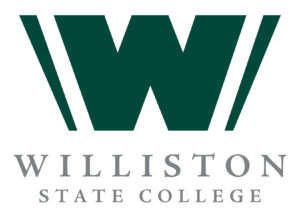 Williston State College–commonly referred to as WSC–is a two-year public college located in Williston, North Dakota, and is a member institution of the North Dakota University System. The school was founded in the year of 1957, and for most of the school’s history it has worked in close association with the University of North Dakota. Legislation passed in 1931 authorized the establishment of junior colleges throughout the state of North Dakota. Cities with a population greater than 10,000 residents were allowed the opportunity first, but eventually the law was expanded (1941) to include cities with 5,000 or more residents which paved the way for Williston State College’s establishment. Williston State College (WSC) was established as the University of North Dakota – Williston in a contractual agreement between the University of Grand Forks and Williston School District #1. UND – Williston became the sole responsibility of the North Dakota State Board of Higher Education on July 1, 1984. In 1999, a change in legislation which allowed the college to expand their mission to include workforce training to employers. The school was now an autonomous community college and assumed the official title of Williston State College the same year this piece of legislation was passed.
Williston State College–commonly referred to as WSC–is a two-year public college located in Williston, North Dakota, and is a member institution of the North Dakota University System. The school was founded in the year of 1957, and for most of the school’s history it has worked in close association with the University of North Dakota. Legislation passed in 1931 authorized the establishment of junior colleges throughout the state of North Dakota. Cities with a population greater than 10,000 residents were allowed the opportunity first, but eventually the law was expanded (1941) to include cities with 5,000 or more residents which paved the way for Williston State College’s establishment. Williston State College (WSC) was established as the University of North Dakota – Williston in a contractual agreement between the University of Grand Forks and Williston School District #1. UND – Williston became the sole responsibility of the North Dakota State Board of Higher Education on July 1, 1984. In 1999, a change in legislation which allowed the college to expand their mission to include workforce training to employers. The school was now an autonomous community college and assumed the official title of Williston State College the same year this piece of legislation was passed.
The areas of study available to students attending Williston State College cover various areas of interests. Students can choose to enroll in a variety of degree-granting and certification-granting programs of study, some of which are: Agriculture, Petroleum Production Technology, Transportation Technician Technology, Welding Technology, Accounting, Business Management, Information Technology, Massage Therapist, Nursing, Speech Language Pathology Assistant, Biology, Dentistry, Interdisciplinary Studies, Pharmacy, Chemistry, Dietetics, Mathematics, Physical Science, Chiropractic Therapist, Engineering, Medicine, Physics, Computer Science, Environmental Studies, Mortuary Science, Radiologic Technology, Dental Assisting, Food & Nutrition, Occupational Therapy, Veterinary Medicine, Dental Hygiene, Optometry, Economics, English, History, Law, Middle School Education, Music, Philosophy, Religion, Sociology, Psychology, Social Work, Spanish, Special Education, Advertising, Communications, Criminal Justice and Addiction Studies among others.
Location: Williston, North Dakota
In-State Tuition: $2,618 per year
Website: http://www.willistonstate.edu/
Ohio – Belmont College
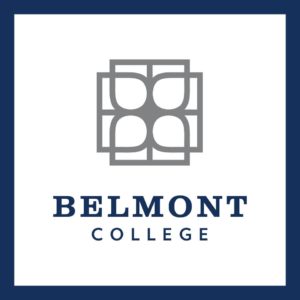 Belmont College–formerly known as Belmont Technical College–is a two year public college with the main campus located in St. Clairsville, Ohio. Belmont College also operates in other locations through satellite locations that include the Monroe County Center located in Monroe County, Ohio and the North Center located in Cadiz, Ohio. The school was founded in the year 1971 and has served as the key educational provider to the Ohio Valley communities for over 40 years. Belmont College is accredited by the Higher Learning Commission (HLC), which is a United States Department of Education recognized and Council for Higher Education Accreditation (CHEA) recognized regional accrediting body that ensures school’s either meet or exceed both of these organization’s standards for education quality and for program rigor.
Belmont College–formerly known as Belmont Technical College–is a two year public college with the main campus located in St. Clairsville, Ohio. Belmont College also operates in other locations through satellite locations that include the Monroe County Center located in Monroe County, Ohio and the North Center located in Cadiz, Ohio. The school was founded in the year 1971 and has served as the key educational provider to the Ohio Valley communities for over 40 years. Belmont College is accredited by the Higher Learning Commission (HLC), which is a United States Department of Education recognized and Council for Higher Education Accreditation (CHEA) recognized regional accrediting body that ensures school’s either meet or exceed both of these organization’s standards for education quality and for program rigor.
The areas of study available through Belmont College cover an ample selection of various disciplines and areas of interest, both in liberal arts-focused areas and technical skill-focused areas. Belmont College offers more than 30 different Applied Associate degrees and 11 certificate programs in these areas of study through the school’s program selection, which includes programs such as: Building Preservation and Restoration, Accounting, Bookkeeping, Business Administration and Leadership, Business Management, Legal Office Specialist, Payroll Clerk, Early Childhood Education, Civil Engineering, Energy and Natural Resources, Industrial Electronics Technologies, Industrial Technology Process Technician, Process Control, Cyber Security and Computer Forensics, Electronic Media, Graphic Design, Networking, Software Development, HVAC Technology, Maintenance Technician, Welding Technology, Medical Assistant, Medical Billing and Coding, Mental Health, Radiologic Technology, Registered Nursing, Criminal Justice, Firefighter and Emergency Medical Services/Paramedic (EMS) among others. In addition to these program offerings, Belmont College’s Workforce and Economic Development Department offers classes for those seeking a specific skill-set without the extended time commitment of completing a degree or certificate program, which allows for greater flexibility.
Location: St. Clairsville, Ohio
In-State Tuition: $2,448 per year
Website: http://www.belmontcollege.edu/
Oklahoma – Carl Albert State College
 Carl Albert State College–commonly referred to as CASC–is a community college located in Southeastern Oklahoma in the city of Poteau, with a smaller campus located in Sallisaw, Oklahoma. Founded in 1933, the school was originally named Poteau Junior College, and its name was changed to Poteau Community College in the early 1950s. In 197, the school was renamed yet again, this time to Carl Albert State College in honor of the then Speaker of the House Carl Albert. The school enrolls approximately 3,300 students annually, giving it a student-faculty ratio of roughly 15-1, which allows for more personalized faculty assistance and an increased hands-on approach to educating due to the small, fairly balanced and desirable student-faculty ratio.
Carl Albert State College–commonly referred to as CASC–is a community college located in Southeastern Oklahoma in the city of Poteau, with a smaller campus located in Sallisaw, Oklahoma. Founded in 1933, the school was originally named Poteau Junior College, and its name was changed to Poteau Community College in the early 1950s. In 197, the school was renamed yet again, this time to Carl Albert State College in honor of the then Speaker of the House Carl Albert. The school enrolls approximately 3,300 students annually, giving it a student-faculty ratio of roughly 15-1, which allows for more personalized faculty assistance and an increased hands-on approach to educating due to the small, fairly balanced and desirable student-faculty ratio.
The areas of study available at Carl Albert State College are represented by a large selection of degree-granting and certificate-granting programs, which include: Business Administration, Child Development, Computer Information Systems, Enterprise Development, Health / Physical Education and Recreation, Pre-Elementary Education, Pre-Law and Criminal Justice, Social Science, Psychology and Sociology, General Studies, General Studies – Communications Option, General Studies – English Option, General Studies – Humanities Option, General Studies – Religion Option, General Studies – Speech and Theatre Option, Pre-Sports Medicine, Biological and Pre-Professional Sciences, Math, Physical Sciences, Pre-Engineering, Nursing, Occupational Health and Safety, Physical Therapist Assistant, Computer Technology and Health Information Technology among others. CASC has established transfer agreements with regional institutions in a number of degree areas. Some of these institutions include: East Central University, Northeastern State University, Oklahoma State University, Southeastern Oklahoma State University and the University of Central Oklahoma. In addition to these areas of study, Carl Albert State College’s Learning Resource Center and The Native American Center for Success have formed a partnership in an effort to provide students with a quiet and relaxing space in which to study, take notes and to obtain tutoring.
Location: Poteau, Oklahoma
In-State Tuition: $1,878 per year
Website: https://www.carlalbert.edu/
Oregon – Klamath Community College
 Klamath Community College–commonly referred to as KCC–is a two-year community college located in Klamath Falls, Oregon. A community college service district was established by the voters of Klamath County in the year of 1996. After several years of contracting with Rogue Community College, Oregon Institute of Technology and Portland Community College to hold classes in rented facilities, a permanent campus for the school was opened in 2000, situated on the east side of Klamath Falls. The school is fully accredited by the Northwest Commission on Colleges and Universities, which is the United States Department of Education recognized regional accreditor responsible for accrediting institutions located within the seven-state Northwest region of the United States, which includes the states of Alaska, Idaho, Montana, Nevada, Oregon, Utah and Washington.
Klamath Community College–commonly referred to as KCC–is a two-year community college located in Klamath Falls, Oregon. A community college service district was established by the voters of Klamath County in the year of 1996. After several years of contracting with Rogue Community College, Oregon Institute of Technology and Portland Community College to hold classes in rented facilities, a permanent campus for the school was opened in 2000, situated on the east side of Klamath Falls. The school is fully accredited by the Northwest Commission on Colleges and Universities, which is the United States Department of Education recognized regional accreditor responsible for accrediting institutions located within the seven-state Northwest region of the United States, which includes the states of Alaska, Idaho, Montana, Nevada, Oregon, Utah and Washington.
The areas of study available at Klamath Community College are comprised of various degree-granting and certification-granting course programs, such as: General Studies, Accounting, Agricultural Sciences, Automotive Technology, Automotive Technician – Electrical and Electronic Specialist, Aviation Science, Aviation Science – Helicopter, Business Administration, Marketing, Office Professional, Computer Engineering Technology, Computer Support Technician, Criminal Justice, Addiction Studies, Culinary Arts – Food Service Management, Diesel Technology, Diesel Technician – Electrical and Electronic Specialist, Digital Media Design, Multimedia Design, Web Design, Early Childhood Education, Paraeducator, Health Information Management, Emergency Medical Technician (EMT), Environmental Sciences, Registered Nursing, Welding – Gas Metal Arc and Wire Feed Welding, Welding – Shield Metal Arc and Stick Welding and Welding – Tig and Aluminum Stainless Steel Flat Welding among others. In addition to the on-campus programs, many of the school’s offerings are also available in an online format which is just as rigorous and has the same level of quality as the online program’s on-campus counterparts are. These online courses afford students an increased level of flexibility when it comes to obtaining a higher education.
Location: Klamath Falls, Oregon
In-State Tuition: $2,988 per year
Website: https://www.klamathcc.edu/Home
Pennsylvania – Northampton Community College
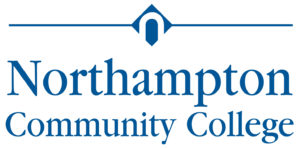 Northampton Community College–commonly referred to as NCC–is a community college with campuses in both Bethlehem Township and Northampton County, just outside the city of Bethlehem in the Lehigh Valley region of the state and in Tannersville, Pennsylvania in neighboring Monroe County. The college, founded in 1967, also has satellite locations in the south side of Bethlehem and in Hawley. The school is one of the largest employers in the Lehigh Valley and is a major educator of registered nurses, licensed practical nurses, emergency responders, radiologic technologists, dental hygienists, veterinary technologists, funeral service directors, chefs and early childhood educators for the region. The school is also one of the largest providers of workforce training, adult literacy programs and non-credit classes in a four-county region, and is the only community college in Pennsylvania to offer on-campus housing. Northampton Community College is accredited by the Middle States Commission on Higher Education, a United States Department of Education recognized regional accreditor.
Northampton Community College–commonly referred to as NCC–is a community college with campuses in both Bethlehem Township and Northampton County, just outside the city of Bethlehem in the Lehigh Valley region of the state and in Tannersville, Pennsylvania in neighboring Monroe County. The college, founded in 1967, also has satellite locations in the south side of Bethlehem and in Hawley. The school is one of the largest employers in the Lehigh Valley and is a major educator of registered nurses, licensed practical nurses, emergency responders, radiologic technologists, dental hygienists, veterinary technologists, funeral service directors, chefs and early childhood educators for the region. The school is also one of the largest providers of workforce training, adult literacy programs and non-credit classes in a four-county region, and is the only community college in Pennsylvania to offer on-campus housing. Northampton Community College is accredited by the Middle States Commission on Higher Education, a United States Department of Education recognized regional accreditor.
The areas of study available at Northampton Community College include the following degree-granting and certification-granting course programs: Accounting, Application Development, Application Programming, Applied Psychology, Applied Quality and Standards, Architecture, Automotive Technology, Biological Science, Biotechnology, Business Administration, Business Management, Chemistry, Communication Design, Communication Studies, Computer-Aided Design (CAD), Computer Forensics Analyst, Computer Information Systems, Computer Maintenance and Service Technology, Computer Networking, Computer Science, Computer Security, Construction Management, Criminal Justice, Culinary Arts, Dental Hygiene, Diagnostic Medical Sonography, Dining Room Operations, Early Childhood Education, Middle Level Education, Secondary Education, Electrical Construction Technology, Electrical Technology, Electromechanical Technology, Electronics Technology, Emergency Services Administration, Emergency Services Technology, Engineering, English, Environmental Sciences, Fine Art, Funeral Service Education, General Studies, Graphic Design, Healthcare Billing and Coding Specialist, History, Hospitality Management, Interior Design, Journalism, Liberal Arts, Marketing, Math and Physics, Nanofabrication Manufacturing Technology and Paralegal courses among others.
Location: Bethlehem, Pennsylvania
In-State Tuition: $5,280 per year
Website: https://northampton.edu/
Rhode Island – Community College of Rhode Island
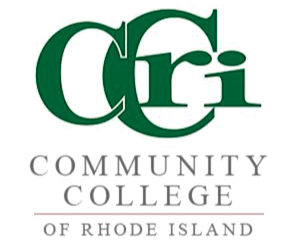 The Community College of Rhode Island–commonly referred to as CCRI–is the only community college located in Rhode Island and is the largest community college in the New England region. The college’s primary facility is located in Warwick, with additional college buildings located throughout the state in Lincoln, two campuses in Providence, Newport and Westerly. The school was founded as Rhode Island Junior College (RIJC) in 1964 with an initial enrollment of 325 students who were studying on the former Knight Estate. In June of 1969 the Rhode Island Junior College Blackstone Valley Campus Master Plan was unveiled. This plan updated the overall projections for full development of the Rhode Island Junior College state system and developed basic design criteria for the second campus facility, which was eventually named the Flanagan Campus in honor of the College’s first president. The Knight campus, built on the Knight Estate which was gifted to the school by Royal W. Knight, opened in 1972 as the school’s first permanent building and as the flagship campus. It was followed by three additional campus and 2 satellite locations soon after.
The Community College of Rhode Island–commonly referred to as CCRI–is the only community college located in Rhode Island and is the largest community college in the New England region. The college’s primary facility is located in Warwick, with additional college buildings located throughout the state in Lincoln, two campuses in Providence, Newport and Westerly. The school was founded as Rhode Island Junior College (RIJC) in 1964 with an initial enrollment of 325 students who were studying on the former Knight Estate. In June of 1969 the Rhode Island Junior College Blackstone Valley Campus Master Plan was unveiled. This plan updated the overall projections for full development of the Rhode Island Junior College state system and developed basic design criteria for the second campus facility, which was eventually named the Flanagan Campus in honor of the College’s first president. The Knight campus, built on the Knight Estate which was gifted to the school by Royal W. Knight, opened in 1972 as the school’s first permanent building and as the flagship campus. It was followed by three additional campus and 2 satellite locations soon after.
The areas of study available at the Community College of Rhode Island include the following degree-granting and certificate-granting programs: Accounting, Administrative Assistant, Nursing, Arabic, Art, Astronomy, Biology, Business Administration, Chemistry, Chinese, Chemical Technology, Networking, Computer Studies and Information Processing, Communications, Computer Science, Culinary Arts Assistant, Dental Assisting, Dental Hygiene, Diagnostic Medical Sonography, Economics, Emergency Management, English, Engineering, Engineering Technology, Land Surveying, Energy Utility Technology, Fire Science, French, Geography, Geology, German, Health, History, Homeland Security, Human Services, Hospitality, Histotechnician, Italian, Japanese, Law, Liberal Arts, Mathematics, Medical Office Administration, Magnetic Resonance Imaging, Music, Nursing, Oceanography, Opticianry, Physical Education, Phlebotomy, Physical Therapist Assistant, Physics, Political Science, Portuguese, Psychology, Renal Dialysis, Respiratory Therapy and Rehabilitative Health among many others which span the Liberal Arts, STEM (Science, Technology, Engineering and Mathematics) and technical / vocational areas.
Location: Warwick, Rhode Island
In-State Tuition: $3,624 per year
Website: http://www.ccri.edu/
South Carolina – College of Charleston
 The College of Charleston–commonly referred to as as CofC–is a public, sea-grant and space-grant university located in historic downtown Charleston, South Carolina. The school was founded in 1770 and chartered in 1785, the university’s name reflects its history as the oldest college in South Carolina, due to Charleston being the oldest city within South Carolina. The school is also the 13th oldest institution of higher learning located in the United States, and the oldest municipal college in the entire country. The founders of the school include three prominent individuals that would later go on to sign the Declaration of Independence; these individuals were Edward Rutledge, Arthur Middleton and Thomas Heyward. The founders of the school also included three different prominent individuals that would later go on to sign the United States Constitution; these three being John Rutledge, Charles Pinckney and Charles Cotesworth Pinckney.
The College of Charleston–commonly referred to as as CofC–is a public, sea-grant and space-grant university located in historic downtown Charleston, South Carolina. The school was founded in 1770 and chartered in 1785, the university’s name reflects its history as the oldest college in South Carolina, due to Charleston being the oldest city within South Carolina. The school is also the 13th oldest institution of higher learning located in the United States, and the oldest municipal college in the entire country. The founders of the school include three prominent individuals that would later go on to sign the Declaration of Independence; these individuals were Edward Rutledge, Arthur Middleton and Thomas Heyward. The founders of the school also included three different prominent individuals that would later go on to sign the United States Constitution; these three being John Rutledge, Charles Pinckney and Charles Cotesworth Pinckney.
The areas of study available at the College of Charleston include various Associate’s degree-granting, Bachelor’s degree-granting and certificate-granting programs across the school’s six academic departments (Biology, Chemistry and Biochemistry, Computer Science, Geology and Environmental Geosciences, Mathematics and Physics and Astronomy) and these programs include: Astrophysics, Astronomy, Biochemistry, Biology, Chemistry, Computer Information Systems, Computer Science, Data Science, Computing in the Arts, Geology, Marine Biology, Mathematics, Physics, Environmental Studies, Neuroscience, Health Professions Advising, Science & Math for Teachers, Professional Studies and Business Administration among others. In addition to the school’s standard degree and certificate programs, there are also non-degree options available to students who wish to enroll into an undergraduate degree program but do not wish to seek to obtain an undergraduate degree. For non-degree enrolled students, if they wish to change their status and to seek an undergraduate degree, they may formally transfer into a College of Charleston degree admission program after completion of 15 to 30 hours of coursework with a minimum of a 2.6 (for in-state residents) or a 3.0 (for out-of-state residents) GPA. At the time the formal request to transfer is made, official transcripts from all colleges and universities previously attended by the student must be submitted if they are not currently on file with the College of Charleston.
Location: Charleston, South Carolina
In-State Tuition: $70 per year
Website: https://www.cofc.edu/
South Dakota – Lake Area Technical Institute
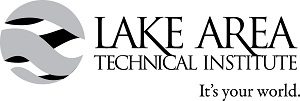 Lake Area Technical Institute–commonly referred to as LATI–is a technical school located in Watertown, South Dakota. The campus covers 40 acres and serves an area of 18,000 square miles. The school was founded in 1965, and Lake Area Tech was the first technical school to be established in the state of South Dakota, followed by schools in Mitchell, Sioux Falls and Rapid City. Lake Area Technical Institute is accredited by The Higher Learning Commission, which is a member of the North Central Association of Colleges and Schools. The Higher Learning Commission (HLC) is a United States Department of Education and Council for Higher Education Accreditation recognized and approved regional accrediting body. President Barack Obama delivered the commencement address on May 8th, 2015. Obama delivered the commencement address due to the fact that he has made technical and vocational education a strong focal point of his administration. President Obama cited LATI’s strong graduation rate as a reason he decided to visit the school.
Lake Area Technical Institute–commonly referred to as LATI–is a technical school located in Watertown, South Dakota. The campus covers 40 acres and serves an area of 18,000 square miles. The school was founded in 1965, and Lake Area Tech was the first technical school to be established in the state of South Dakota, followed by schools in Mitchell, Sioux Falls and Rapid City. Lake Area Technical Institute is accredited by The Higher Learning Commission, which is a member of the North Central Association of Colleges and Schools. The Higher Learning Commission (HLC) is a United States Department of Education and Council for Higher Education Accreditation recognized and approved regional accrediting body. President Barack Obama delivered the commencement address on May 8th, 2015. Obama delivered the commencement address due to the fact that he has made technical and vocational education a strong focal point of his administration. President Obama cited LATI’s strong graduation rate as a reason he decided to visit the school.
The areas of study available at Lake Area Technical Institute include: Agriculture, Agriculture – Aviation Option, Agriculture – Business Option, Agriculture – Production, Commodity Merchandising, Dairy, Equine Management, Large Animal Technician, Precision Technology, Ranch Management, Swine Management, Automotive Technology, Aviation Maintenance Technology, Building Trades Technology, Business Associate, Entrepreneurship, Human Resource Associate, Marketing and Management, Photography and Media, Computer Information Systems, Programming Specialist, Network Specialist, Visual Communications Specialist, Security Specialist, Cosmetology, Custom Paint and Fabrication, Auto Body Technician, Dental Assisting, Diesel Technology, Diesel Technology – Diesel Truck and Agriculture Industrial Option, Electronic Systems Technology, Energy Operations, Energy Technology, Environmental Technology, Business Accounting, Consumer Financial Services, Financial Services, Heavy Equipment Operator, High Performance Engine Machining, Human Services Technician, Activity Technicians and Mental Health, Child Development, Developmental Disabilities, Youth Offender, Law Enforcement, Emergency Medical Specialist, Paramedic, Medical Assisting, Medical Lab Technician and Nursing among others.
Location: Watertown, South Dakota
In-State Tuition: $2,496 per year
Website: https://www.lakeareatech.edu/
Tennessee – Dyersburg State Community College
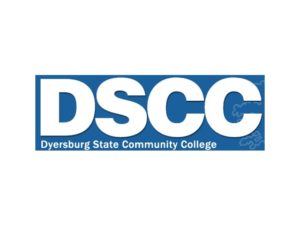 Dyersburg State Community College–commonly referred to as DSCC–is a Tennessee Board of Regents-operated community college located in Dyersburg, Tennessee and with educational centers in both Covington and Trenton, Tennessee. Dyersburg State Community College serves seven counties adjacent to or near the Mississippi River in West Tennessee. An open-access and learning-centered institution, Dyersburg State is continually striving to anticipate and respond to the educational needs of individuals through the use of strategic planning and continuous improvement processes. Furthermore, to improve the quality of life in the communities served, the school is committed to developing and promoting civic and cultural opportunities, as well as economic and community development initiatives through partnerships with both local businesses and industries.
Dyersburg State Community College–commonly referred to as DSCC–is a Tennessee Board of Regents-operated community college located in Dyersburg, Tennessee and with educational centers in both Covington and Trenton, Tennessee. Dyersburg State Community College serves seven counties adjacent to or near the Mississippi River in West Tennessee. An open-access and learning-centered institution, Dyersburg State is continually striving to anticipate and respond to the educational needs of individuals through the use of strategic planning and continuous improvement processes. Furthermore, to improve the quality of life in the communities served, the school is committed to developing and promoting civic and cultural opportunities, as well as economic and community development initiatives through partnerships with both local businesses and industries.
The areas of study available at Dyersburg State Community College cover a myriad of disciplines and areas of interests, with various degree-granting and certificate-granting programs that students can choose from, such as: Accounting, Administrative Professional Technology, Agriculture, Business Administration, International Affairs, Computing and Information Systems, Business Management, English, Foreign Languages, History, Philosophy, Early Childhood Education, Exercise Science, Family and Consumer Science, K-6 Education, Nutrition and Food Science, Physical Education, Pre-K-3 Education, Secondary Education, Special Education, Sports and Leisure Management, General Studies, Advanced Emergency Medical Technician, Health Information Technology, Imaging Sciences, LPN to RN Fast Track course, Nursing, Paramedic, Paramedic to RN, Pre-Clinical Lab Sciences, Pre-Dental Hygiene, Pre-Health Professions, Pre-Nursing, Pre-Occupational Therapy, Pre-Physical Therapy, Criminal Justice, Psychology, Social Work, Sociology, Advanced Integrated Industrial Technology, Biology and Chemistry among others. In addition to these programs, the school also has a Continuing Education and Workforce Development program which provides adults and experienced professionals with skill- and career-supplementary educational courses along with life-enriching courses such as: photography, ballroom dancing, cake decorating, conversational Spanish, Microsoft Office courses and Six Sigma certification.
Location: Dyersburg, Tennessee
In-State Tuition: $3,336 per year
Website: http://www.dscc.edu/
Texas – Panola College
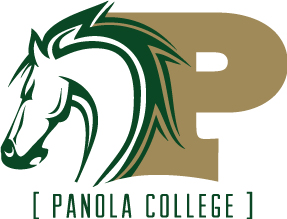 Panola College is a community college located in Carthage, Texas. The school’s name derives from Panola County, Texas, of which Carthage is the county seat. Panola College also operates branch locations in Marshall and Center, Texas. In addition to the school’s main campus and branch locations, the school also serves residents of nearby Louisiana parishes (as Panola County is on the state border) and United States Air Force members who are stationed at Barksdale Air Force Base. Panola College was established on June 14 in the year of 1947, and began operations in January 19, 1948 at the corner of State Highway 315 and U.S. Highway 79, where it continues to operate today. The first permanent buildings were erected in the year of 1949 and in 1995, the adjacent counties of Harrison, Marion, and Shelby were added by law to the school’s designated service area. The book Panola Junior College: The First Twenty-Five Years and the updated volume Panola College, 1947-1997 were both written by the school’s retired history professor, Bill O’Neal.
Panola College is a community college located in Carthage, Texas. The school’s name derives from Panola County, Texas, of which Carthage is the county seat. Panola College also operates branch locations in Marshall and Center, Texas. In addition to the school’s main campus and branch locations, the school also serves residents of nearby Louisiana parishes (as Panola County is on the state border) and United States Air Force members who are stationed at Barksdale Air Force Base. Panola College was established on June 14 in the year of 1947, and began operations in January 19, 1948 at the corner of State Highway 315 and U.S. Highway 79, where it continues to operate today. The first permanent buildings were erected in the year of 1949 and in 1995, the adjacent counties of Harrison, Marion, and Shelby were added by law to the school’s designated service area. The book Panola Junior College: The First Twenty-Five Years and the updated volume Panola College, 1947-1997 were both written by the school’s retired history professor, Bill O’Neal.
The various areas of study available at Panola College cover a variety of different disciplines and areas of interest, and available degree-granting programs and certificate-granting programs include: Nursing, Occupational Therapy Assistant, Emergency Medical Technician, Health Information Technology, Medical Laboratory Technician, Medical Assistant, Industrial Technology, Petroleum Technology, Welding, Computer Information Technology, General Business, Office Professional, Communication, Cosmetology, Developmental Education, Fine Arts, Letters (which is designed to provide quality instruction in both written and oral communication), Math, Science, Physical Education, General Education and Social Sciences among others. In addition to these degree- and certification-granting programs, Panola College also has many courses available in their Workforce and Continuing Education division. These programs are designed to enrich student lives either by teaching them new skills, supplementing their existing skills or to introduce them to a new hobby. These programs include: Spin Classes, Yoga, Kickboxing, Excel, Accounting, Spanish, Drawing and Ceramics.
Location: Carthage, Texas
In-State Tuition: $600 per year
Website: http://www.panola.edu/
Utah – Snow College
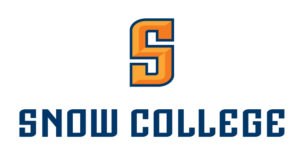 Snow College is a rural, two-year state college located in Ephraim, Utah. The school offers various certificates and Associate degrees in a number of areas, along with a Bachelor’s degree in Music and a 4-year nursing program. Snow College is operated as part of the Utah System of Higher Education and was founded in the year of 1888 by the local citizens and was originally called Sanpete Stake Academy. The school was later renamed Snow Academy to honor leaders of The Church of Jesus Christ of Latter-day Saints (LDS Church), Lorenzo Snow and Erastus Snow. The name change from Sanpete Stake Academy to Snow College occurred in 1923 and the school was transferred from the LDS Church to the State of Utah in 193. The school is now a nonsectarian school and is one of the oldest junior colleges located west of the Mississippi river.
Snow College is a rural, two-year state college located in Ephraim, Utah. The school offers various certificates and Associate degrees in a number of areas, along with a Bachelor’s degree in Music and a 4-year nursing program. Snow College is operated as part of the Utah System of Higher Education and was founded in the year of 1888 by the local citizens and was originally called Sanpete Stake Academy. The school was later renamed Snow Academy to honor leaders of The Church of Jesus Christ of Latter-day Saints (LDS Church), Lorenzo Snow and Erastus Snow. The name change from Sanpete Stake Academy to Snow College occurred in 1923 and the school was transferred from the LDS Church to the State of Utah in 193. The school is now a nonsectarian school and is one of the oldest junior colleges located west of the Mississippi river.
The areas of study available at Snow College cover a myriad of disciplines, both in Liberal Arts and in trade or vocational disciplines. These areas of study are made up of numerous degree-granting and certificate-granting programs, such as: Accounting, Agricultural Business, Anthropology, Art, Automotive, Biological Science, Business Management, Business and Music Technology, Business Technology, Business Administration, General Business, Child-Care Management, Commercial Driver License (CDL), Chemical Engineering, Chemistry, Computer Information Systems, Construction Management, Certified Nurse Assistant, Communications, Cosmetology and Barbering, Computer Science, Criminal Justice and Corrections, Collision Repair and Refinishing Technician, Civil Engineering, Dance, Diesel and Heavy Duty Mechanical Technician, Early Childhood Education, Economics, General Education, Elementary Education, Electrical Engineering, English, Engineering, Entrepreneurship, Family Life, Farm and Ranch Management, French Language, Geology, Geography, German, General Technologies, Home and Family Studies, History, Industrial Mechanics, Italian, Japanese Language, Journalism, Industrial Manufacturing, Mathematics, Mechanical Engineering, Medical Technician, Marketing, Machine Tooling Technology, Music and Network Administration among others.
Location: Ephraim, Utah
In-State Tuition: $2,830 per year
Website: https://www.snow.edu/
Vermont – Community College of Vermont
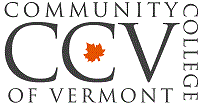 The Community College of Vermont–commonly known as CCV–is the state of Vermont’s second largest college, serving approximately 7,000 students each semester. The school has 12 different locations located throughout Vermont as well as offering students extensive online learning options. CCV is a member of the Vermont State Colleges (VSC). Each of the five VSC colleges has its own president and school deans. The Community College of Vermont is the most expensive community college located in the United States, but is the cheapest college–community or private–per credit hour in the state of Vermont The state created the Vermont Regional Community College Commission (VRCCC) in 1970. VRCCC opened in Montpelier, Vermont with 10 courses and 50 enrolled students. In 1975, CCV earned accreditation from the New England Association of Schools and Colleges and in 1992, CCV deployed the school’s virtual campus which linked its 13 locations via a computer network. In 1996, CCV offered its first online course: Introduction to Political Science.
The Community College of Vermont–commonly known as CCV–is the state of Vermont’s second largest college, serving approximately 7,000 students each semester. The school has 12 different locations located throughout Vermont as well as offering students extensive online learning options. CCV is a member of the Vermont State Colleges (VSC). Each of the five VSC colleges has its own president and school deans. The Community College of Vermont is the most expensive community college located in the United States, but is the cheapest college–community or private–per credit hour in the state of Vermont The state created the Vermont Regional Community College Commission (VRCCC) in 1970. VRCCC opened in Montpelier, Vermont with 10 courses and 50 enrolled students. In 1975, CCV earned accreditation from the New England Association of Schools and Colleges and in 1992, CCV deployed the school’s virtual campus which linked its 13 locations via a computer network. In 1996, CCV offered its first online course: Introduction to Political Science.
The areas of study offered through the Community College of Vermont include: Early Childhood Education, Graphic Design, Liberal Studies, Multimedia Communications, Visual Arts, Accounting, Administrative Management, Business, Computer Systems Management, Criminal Justice, Environmental Science, Human Services, Medical Assisting, Network Administration, Childcare, Medical Billing and Coding, Substance Abuse Services, Website Design and Workplace Skills among others. In addition to the school’s 19 different Associate degree programs and 6 certificate programs, the Community College of Vermont also offers an Assessment of Prior Learning course, through which students may obtain credits for knowledge acquired outside the classroom, an Introduction to College Studies course designed for high school students and two study abroad opportunities that are available annually. Many of these Associate’s degree programs and certification programs are also available online, allowing students to obtain a high-quality but flexible education.
Location: Waterbury, Vermont
In-State Tuition: $5,568 per year
Website: http://ccv.edu/
Virginia – New River Community College
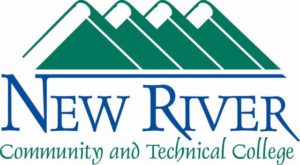 New River Community College–commonly referred to as NRCC–is a community college located in Dublin, Virginia, in the New River Valley of southwestern Virginia. New River Community College is one of 23 colleges in the Virginia Community College System (VCCS). NRCC’s area of service covers the counties of Montgomery, Floyd, Pulaski and Giles and the city of Radford, Virginia. NRCC opened as New River Vocational-Technical School in the year of 1959 and came under the jurisdiction of the VCCS in 1966. The school’s name was changed in late 1969. In November of that same year, the newly named New River Community College broke ground in Dublin. Currently, the college has an average enrollment of approximately 5,000 students. NRCC is accredited by the Commission of Colleges of the Southern Association of Colleges and Schools, which is a United States Department of Education and Council for Higher Education Accreditation recognized regional accrediting body that is responsible for the accreditation of institutions located in the southern region of the nation, which consists of the states of Florida, Georgia, Kentucky, Louisiana, Mississippi, North Carolina, South Carolina, Alabama, Tennessee, Texas and Virginia, as well as schools for US students in Mexico, the Caribbean, Central America, and South America.
New River Community College–commonly referred to as NRCC–is a community college located in Dublin, Virginia, in the New River Valley of southwestern Virginia. New River Community College is one of 23 colleges in the Virginia Community College System (VCCS). NRCC’s area of service covers the counties of Montgomery, Floyd, Pulaski and Giles and the city of Radford, Virginia. NRCC opened as New River Vocational-Technical School in the year of 1959 and came under the jurisdiction of the VCCS in 1966. The school’s name was changed in late 1969. In November of that same year, the newly named New River Community College broke ground in Dublin. Currently, the college has an average enrollment of approximately 5,000 students. NRCC is accredited by the Commission of Colleges of the Southern Association of Colleges and Schools, which is a United States Department of Education and Council for Higher Education Accreditation recognized regional accrediting body that is responsible for the accreditation of institutions located in the southern region of the nation, which consists of the states of Florida, Georgia, Kentucky, Louisiana, Mississippi, North Carolina, South Carolina, Alabama, Tennessee, Texas and Virginia, as well as schools for US students in Mexico, the Caribbean, Central America, and South America.
The areas of study available at New River Community College include degree-granting and certification-granting programs such as: Accounting, Accounts Receivable and Accounts Payable, Administrative Assistant, Administrative Support Technology, Advanced Manufacturing Technology, Advanced Welding, Alternative Energy, Architectural and Engineering Design Specialization, Automotive Analysis and Repair, Automotive Driveability, Basic Machine Tool Operations, Business Administration, Business Management, Child Development, Construction Technology, Cost Accounting Clerk, Cyber Security, Early Childhood Development Specialization, Education, Electrical Engineering Technology, Electronics, Engineering, Forensic Science, Game and Web Design and Animation, General Studies, Human Services, Liberal Arts, Machine Operations, Marketing Management Specialization, Mechatronics, Nurse Aide, Nursing, Paralegal Administrative Support Specialization, Paralegal Assistant, Police Science, Refrigeration and Air Conditioning, Supervision and Leadership, Visual Communication Design and Welding Technology among others.
Location: Dublin, Virginia
In-State Tuition: $2,929 per year
Website: https://www.nr.edu/
Washington – Lake Washington Institute of Technology
 Lake Washington Institute of Technology–commonly referred to as LWTech–is a public two-year technical community college located in Kirkland, Washington with a satellite campus in adjacent Redmond. It is located in the North Rose Hill neighborhood above Totem Lake in Kirkland. The school was formerly known as Lake Washington Technical College (LWTC). Lake Washington Technical College was founded in 1949 by Lake Washington School District as an adult vocational training program. At first the school only offered a sewing program, but it expanded to other vocations over the years including automotive, culinary arts and engineering. On September 1, 1991 the institute became a degree-granting technical college with all the rights and responsibilities of a technical college as prescribed by state law. And, in addition to regular student enrollment, Lake Washington Institute of Technology offers what they call a Technical Academy, which is a full-time special purpose high school program that provides qualifying students–between the ages of 16 to 20–an opportunity to complete their high school diploma and to earn a two-year college technical degree at the same time.
Lake Washington Institute of Technology–commonly referred to as LWTech–is a public two-year technical community college located in Kirkland, Washington with a satellite campus in adjacent Redmond. It is located in the North Rose Hill neighborhood above Totem Lake in Kirkland. The school was formerly known as Lake Washington Technical College (LWTC). Lake Washington Technical College was founded in 1949 by Lake Washington School District as an adult vocational training program. At first the school only offered a sewing program, but it expanded to other vocations over the years including automotive, culinary arts and engineering. On September 1, 1991 the institute became a degree-granting technical college with all the rights and responsibilities of a technical college as prescribed by state law. And, in addition to regular student enrollment, Lake Washington Institute of Technology offers what they call a Technical Academy, which is a full-time special purpose high school program that provides qualifying students–between the ages of 16 to 20–an opportunity to complete their high school diploma and to earn a two-year college technical degree at the same time.
The areas of study available at Lake Washington Institute of Technology include the following degree-granting and certificate-granting programs: Accounting, Auto Collision Repair Technician, Baking Arts, Business Technology, Computer Security and Network Technician, Culinary Arts, Dental Assistant, Diesel and Heavy Equipment Technician, Early Childhood Education, Electronics Technology, Environmental Horticulture, Fitness Specialist and Personal Trainer, Funeral Service Education, Information Technology Applications Development, Machine Technology, Medical Assisting, Physical Therapist Assistant, Social and Human Services, Welding Technology, Entrepreneurship, Design, Architectural Technology, Structural Repair, IT Support Technician and Photonics Technology among many others. Lake Washington Institute of Technology offers three Bachelor’s degree programs in addition to the school’s numerous Associate degree programs and certifications. These three degree programs are a Bachelor of Technology in Applied Design, a Bachelor of Applied Science in Public Health and a Bachelor of Applied Science in Transportation and Logistics Management.
Location: Kirkland, Washington
In-State Tuition: $2,829 per year
Website: http://www.lwtech.edu/
West Virginia – Blue Ridge Community and Technical College
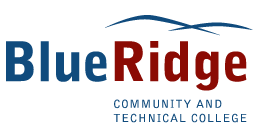 Blue Ridge Community and Technical College–commonly referred to as Blue Ridge CTC or simply as BRCTC–is a two-year college located in Martinsburg, West Virginia in Berkeley County. Formerly known as the Community and Technical College of Shepherd, Blue Ridge CTC was a part of Shepherd College until March 2005, when it was accredited as an independent institution. On July 1, 2006, it was officially renamed Blue Ridge Community and Technical College. Blue Ridge Community and Technical College began an extensive self-study process in 2006 to prepare for the HLC comprehensive evaluation in October 2009. A significant part of the Self-Study effort is the preparation of a Self-Study Report which demonstrates that Blue Ridge CTC should be accredited. Blue Ridge CTC received ten year accreditation in Spring 2010.
Blue Ridge Community and Technical College–commonly referred to as Blue Ridge CTC or simply as BRCTC–is a two-year college located in Martinsburg, West Virginia in Berkeley County. Formerly known as the Community and Technical College of Shepherd, Blue Ridge CTC was a part of Shepherd College until March 2005, when it was accredited as an independent institution. On July 1, 2006, it was officially renamed Blue Ridge Community and Technical College. Blue Ridge Community and Technical College began an extensive self-study process in 2006 to prepare for the HLC comprehensive evaluation in October 2009. A significant part of the Self-Study effort is the preparation of a Self-Study Report which demonstrates that Blue Ridge CTC should be accredited. Blue Ridge CTC received ten year accreditation in Spring 2010.
The areas of study available at Blue Ridge Community and Technical College include degree-granting programs such as: Accounting, Board of Governors, Business, Business Administration, Computer Application Specialist, Baking and Pastry, Culinary Arts, Food Service – Retail Management, Electric Distribution Technology, Electric Utility Technology, Mechatronics, Liberal Arts, Healthcare Professions, Health Information Management, Medical Assisting, Nursing, Paramedic, Physical Therapist Assisting, Criminal Justice, Paralegal Studies, Education, Occupational Development – Child Development Specialist, Printing Technology, Technical Studies, Applied Technology, Computer Network Engineering Technologies, Cyber Security, Information Technology (IT). In addition to the degree-granting programs available at Blue Ridge CTC, there are many certificate-granting programs to choose from, such as: Bookkeeping, Business Communications, Organizational Leadership Development, Computer Aided Design (CAD) and Building Information Modeling, Forensic Science, Homeland Security, Agribusiness, Cisco Certified Network Associate, Cisco Certified Network Professional, Virtualization Technology and Converged Networking among others. Students that successfully complete one of the school’s many certification programs will be ready to immediately join the workforce as a skilled professional.
Location: Martinsburg, West Virginia
In-State Tuition: $408 per year
Website: http://www.blueridgectc.edu/
Wisconsin – Chippewa Valley Technical College
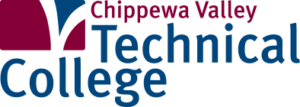 Chippewa Valley Technical College–commonly referred to as Chippewa Tech or simply as CVTC–is one of the 16 technical and community colleges in the Wisconsin Technical College System (WTCS). The school’s main campus is centered in Eau Claire, Wisconsin. The Eau Claire campus is actually comprised of three separate campuses: The Clairmont Campus, the Gateway Campus and the West Campus. Chippewa Valley Technical College also manages major regional centers located in Chippewa Falls, Menomonie, Neillsville and River Falls, Wisconsin. The school serves an eleven-county service area, which includes Chippewa County and Eau Claire County (which have a combined population of almost 200,000 residents), along with Dunn County and other, smaller counties.
Chippewa Valley Technical College–commonly referred to as Chippewa Tech or simply as CVTC–is one of the 16 technical and community colleges in the Wisconsin Technical College System (WTCS). The school’s main campus is centered in Eau Claire, Wisconsin. The Eau Claire campus is actually comprised of three separate campuses: The Clairmont Campus, the Gateway Campus and the West Campus. Chippewa Valley Technical College also manages major regional centers located in Chippewa Falls, Menomonie, Neillsville and River Falls, Wisconsin. The school serves an eleven-county service area, which includes Chippewa County and Eau Claire County (which have a combined population of almost 200,000 residents), along with Dunn County and other, smaller counties.
The areas of study available at Chippewa Valley Technical College include: Accounting, Accounting Assistant, Agriscience Technician, Air Conditioning, Heating and Refrigeration Technology, Alcohol and Other Drug Abuse, Architectural Structural Design, Auto Collision Repair and Refinishing Technician, Automation Engineering Technology (Electromechanical Technology), Automotive Maintenance Technician, Automotive Technician, Business Management, Central Service Technician, Child Care Services, Cosmetology, Criminal Justice, Criminal Justice – Law Enforcement Academy, Dental Assistant, Dental Hygienist, Diagnostic Medical Sonography, Diesel and Heavy Equipment Technician, Early Childhood Education, Electrical Power Distribution, Electromechanical Maintenance Technician, Environmental Refrigeration, Air Conditioning and Heating Service Technician, Executive Assistant, Farm Business and Production Management, Fire Sciences, Medic, Health Information Management and Technology, Human Resources, Individualized Technical Studies, Industrial Mechanic, Industrial Mechanical Technician, Mobile Developer, Network Specialist, Software Developer, Landscaping, Plant and Turf Management, Liberal Arts, Machine Tooling Technics, Manufacturing Engineering Technologist, Marketing, Medical Assistant, Medical Laboratory Technician, Motorcycle, Marine and Outdoor Power Products Technician, Nano Engineering Technology, Nursing, Nursing Assistant, Office Assistant, Organizational Leadership, Paralegal, Paralegal Post-Baccalaureate, Paramedic Technician, Pharmacy Technician, Physical Therapist Assistant, Professional Communications, Radiography, Renal Dialysis Technician, Residential Construction, Respiratory Therapy, Surgical Technologist, Truck Driving and Welding and Welding Fabrication among others.
Location: Eau Claire, Wisconsin
In-State Tuition: $3,395 per year
Website: http://www.cvtc.edu/
Wyoming – Casper College
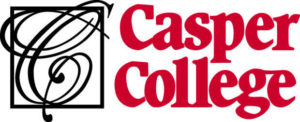 Casper College is a public college located in the heart of Wyoming in the city of Casper. Casper College is one of the largest and most comprehensive community colleges located within the region. The school was established in 1945 as the state of Wyoming’s first junior college and was initially located on the third floor of Natrona County High School. Casper College moved to its current campus site 10 years later in 1955. Currently the campus consists of 28 buildings that are located on more than 200 acres of land. The school’s campus grounds are distinctive, with terraces that surround the modern buildings. The Tate Geological Museum is located on the south end of the campus. The Tate Geological Museum was founded in 1980 through a gift from Marion and Inez Tate. It was originally designated as the Tate Earth Science Center and Mineralogical Museum. The Tate Geological Museum houses a collection of over 3000 fossil and mineral specimens.
Casper College is a public college located in the heart of Wyoming in the city of Casper. Casper College is one of the largest and most comprehensive community colleges located within the region. The school was established in 1945 as the state of Wyoming’s first junior college and was initially located on the third floor of Natrona County High School. Casper College moved to its current campus site 10 years later in 1955. Currently the campus consists of 28 buildings that are located on more than 200 acres of land. The school’s campus grounds are distinctive, with terraces that surround the modern buildings. The Tate Geological Museum is located on the south end of the campus. The Tate Geological Museum was founded in 1980 through a gift from Marion and Inez Tate. It was originally designated as the Tate Earth Science Center and Mineralogical Museum. The Tate Geological Museum houses a collection of over 3000 fossil and mineral specimens.
The areas of study available at Casper College include a wide-selection of diverse degree-granting and certificate-granting programs, such as: Accounting, Addictionology, Agri-business, Agriculture, Agriculture Communications, Animal Science, Anthropology, Architectural Graphics and Design, Art, Art Education, Assistive Technology, Athletic Training, Auto Body Repair Technology, Aviation, Biology, Business Administration, Chemistry, Cognitive Retraining, Communication, Computed Tomography, Computer Science, Computer Security, Construction Management, Construction Technology, Criminal Justice, Diesel Power Technology, Dispatch Services, Drafting and Design Technology, Early Childhood Education, Economics, Electrical Apprenticeship, Electronics Technology, Elementary Education, Engineering, English and Literature, Entrepreneurship, Environmental Science, Equine Assisted Therapy, Fine Art, Fire Sciences, Forensic Science, French, General Studies, Geography, Geology, German, Gerontology, Graphic Design, Health Science, History, Hospitality Management, International Studies, Japanese, Leadership and Organizational Management, Liberal Arts, Machine Tooling Technology, Magnetic Resonance Imaging, Mammography, Management, Manufacturing Technology, Marketing, Mathematics, Music and Nursing among many other programs.
Location: Casper, Wyoming
In-State Tuition: $1,896 per year
Website: http://www.caspercollege.edu/